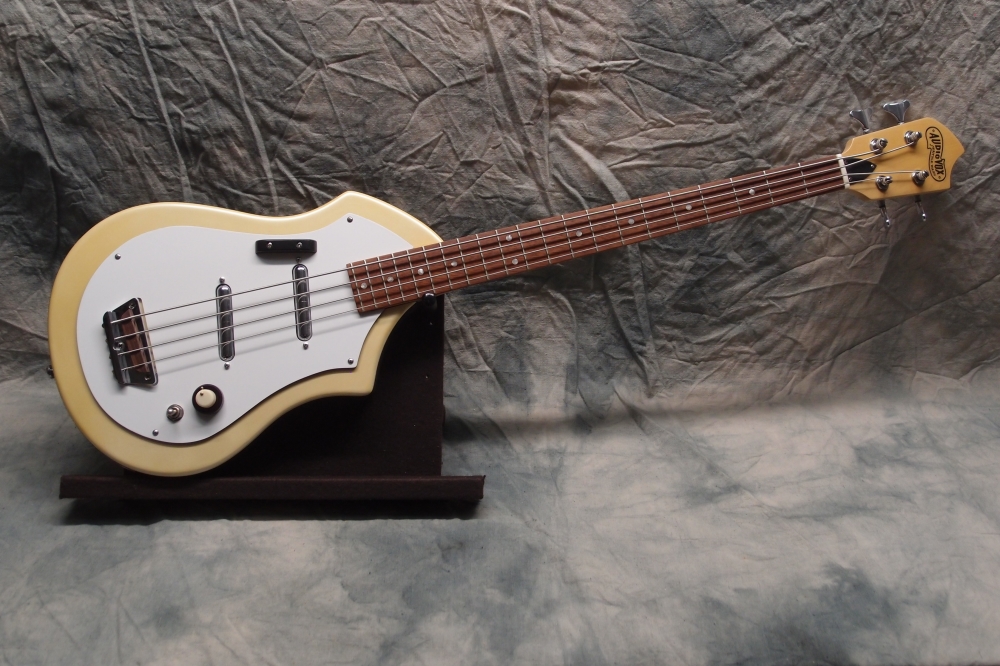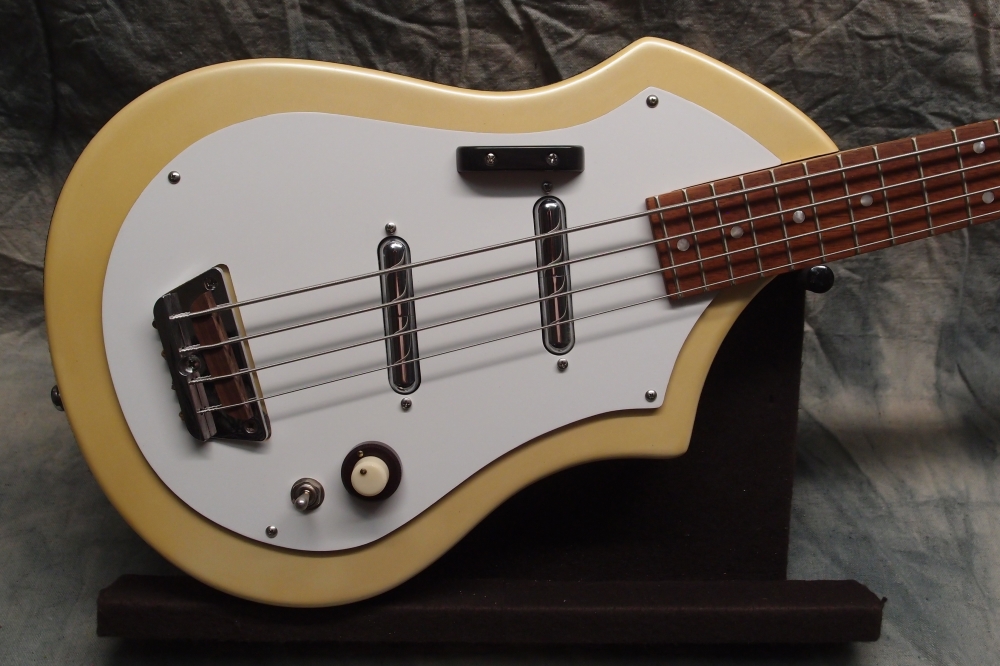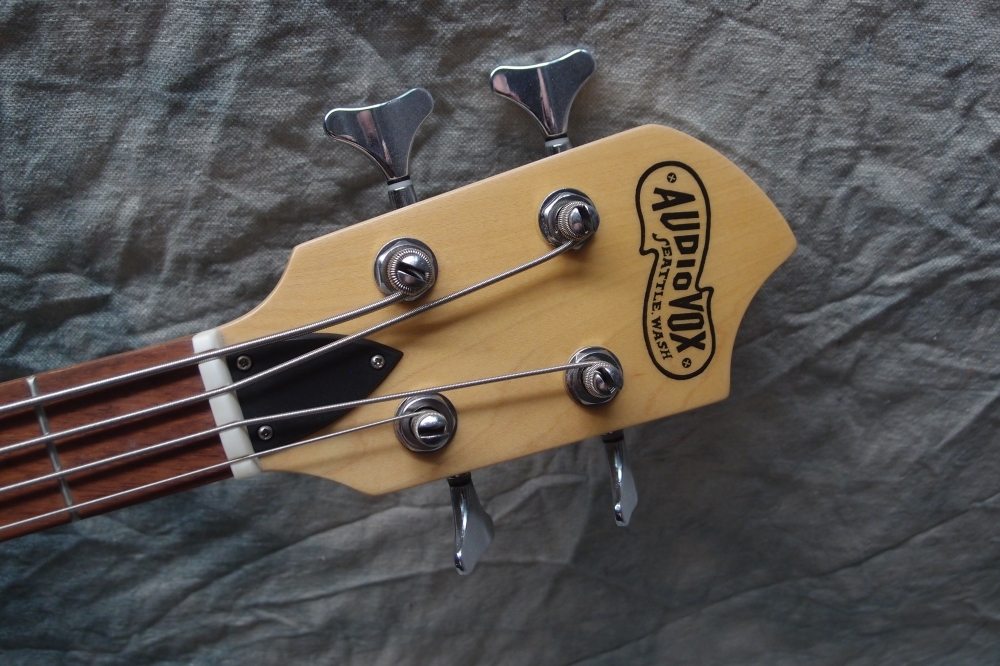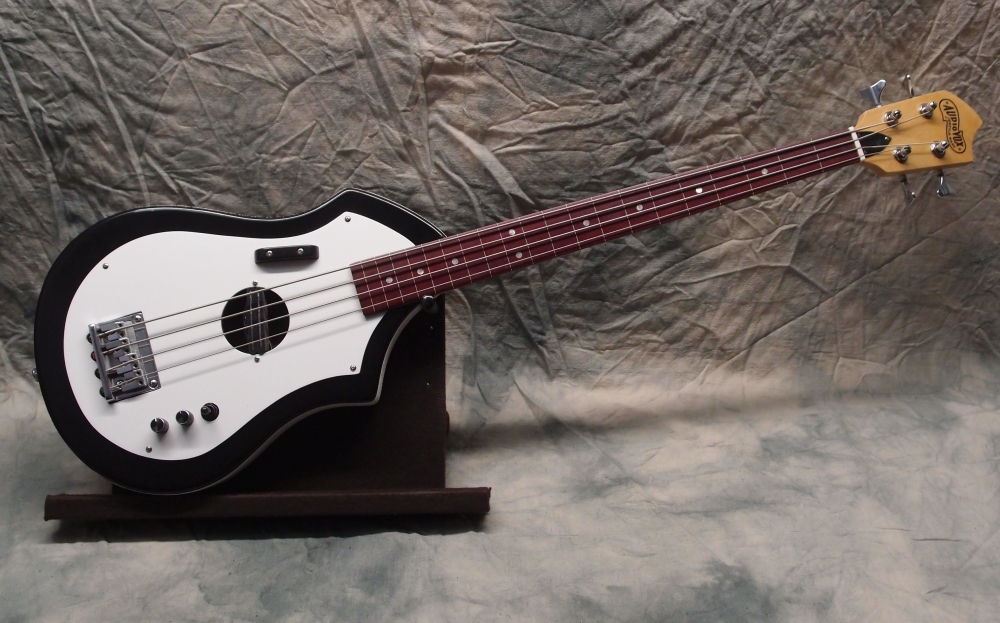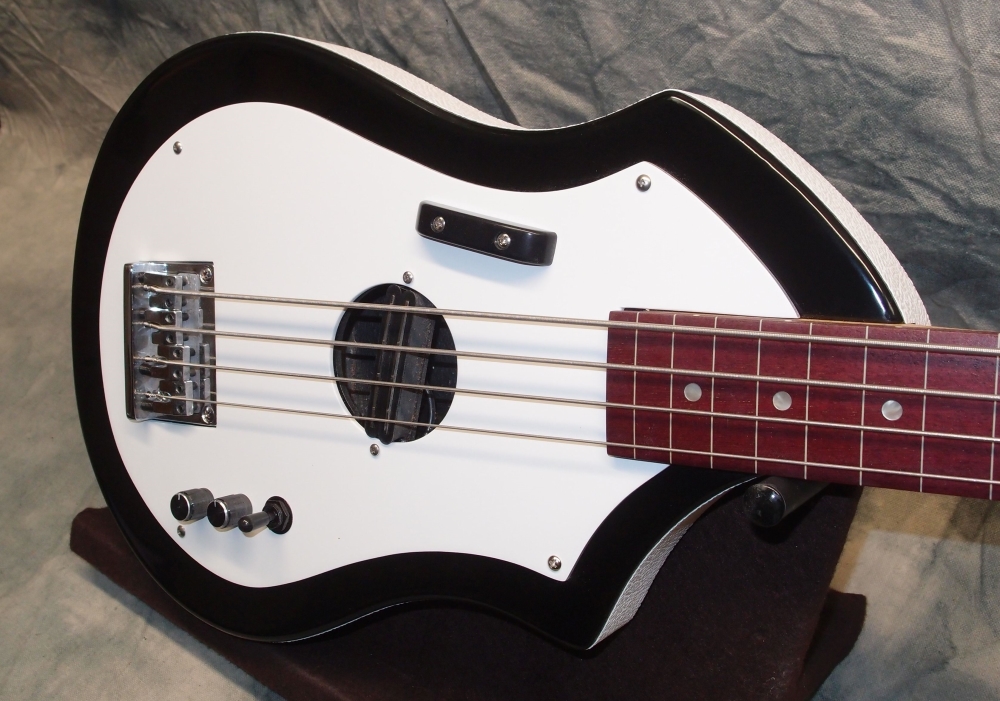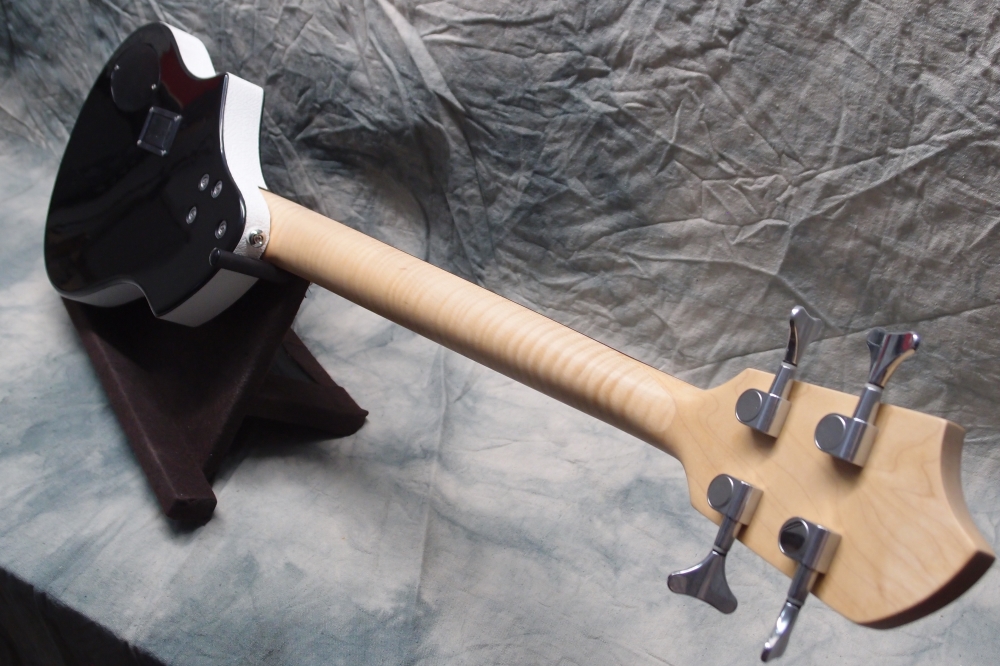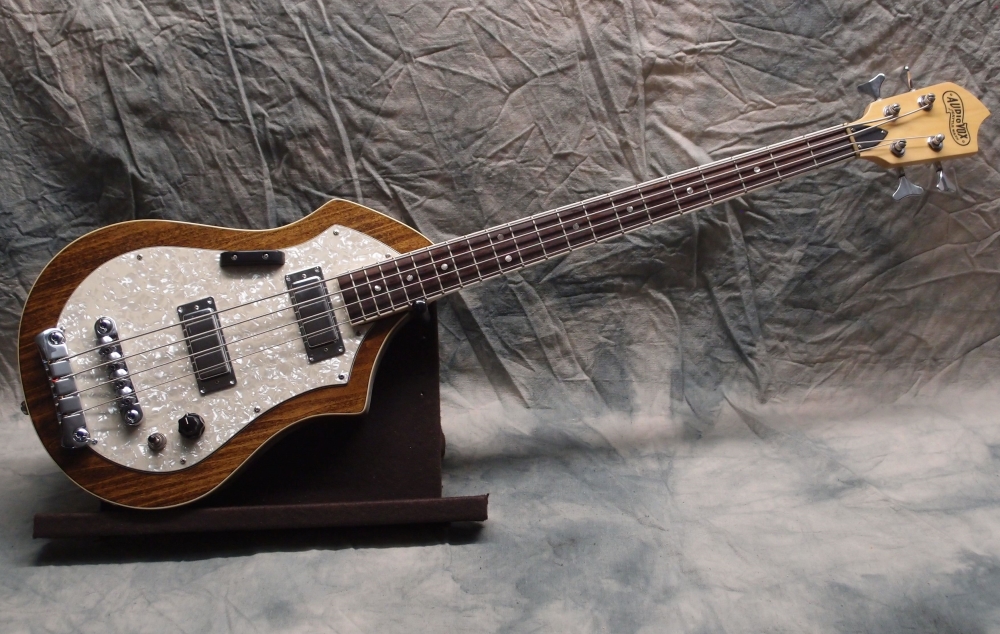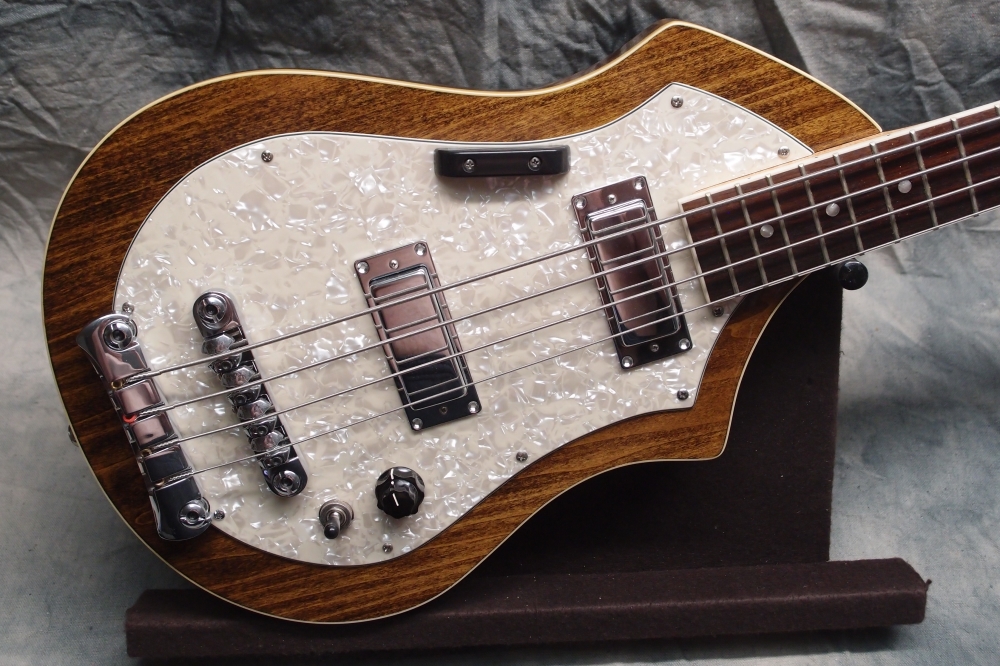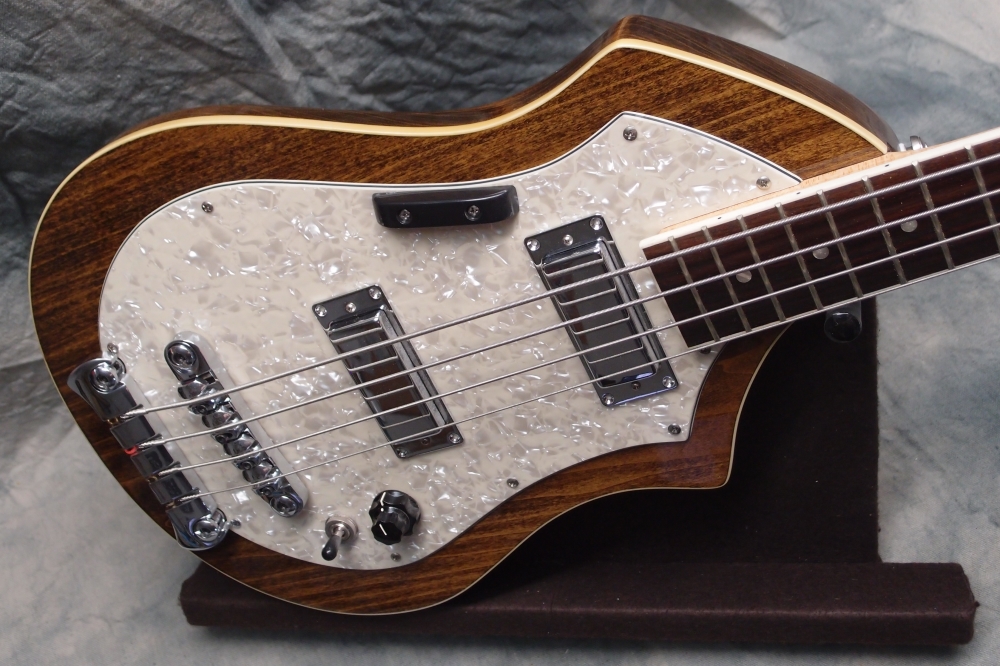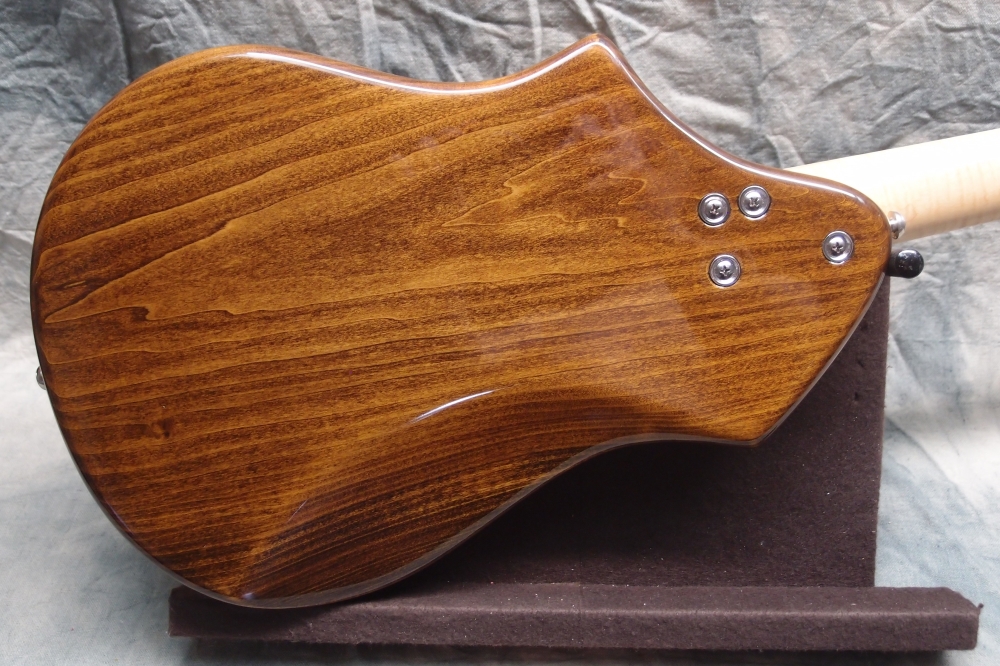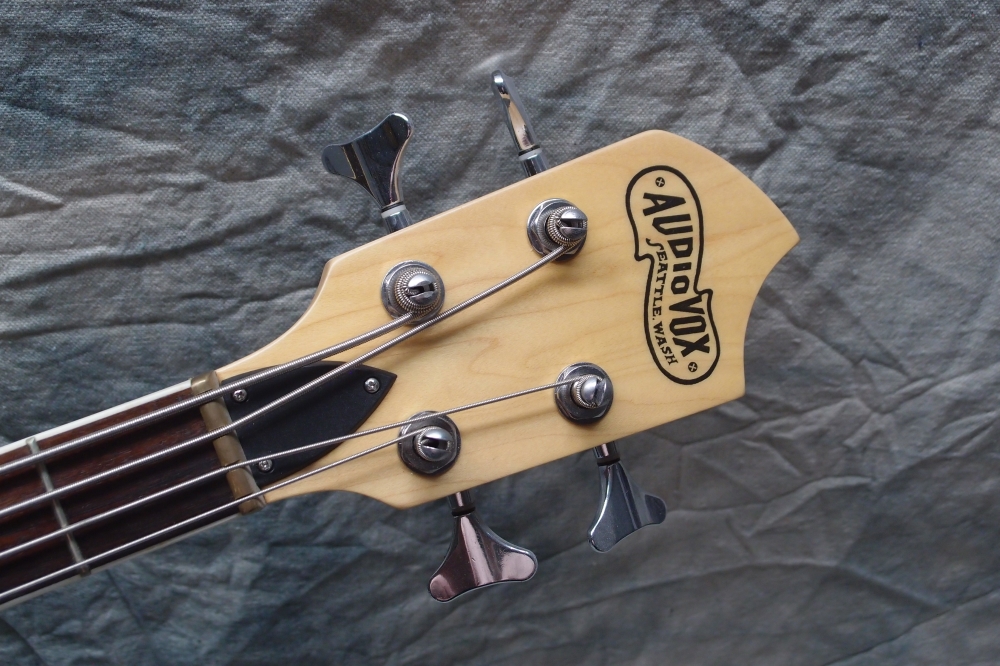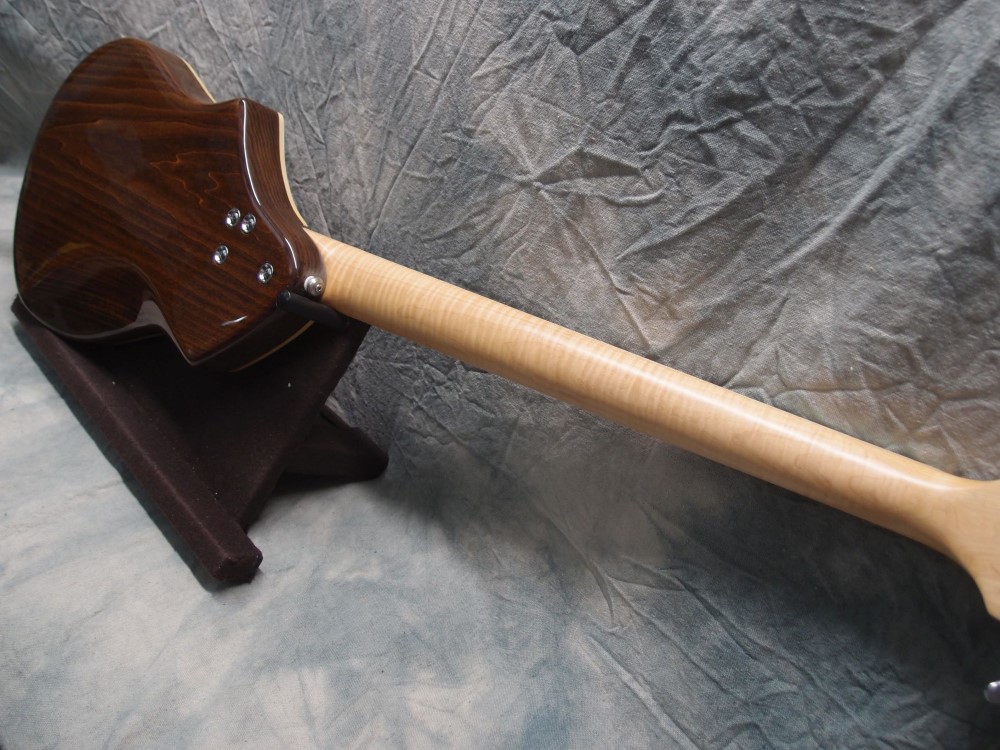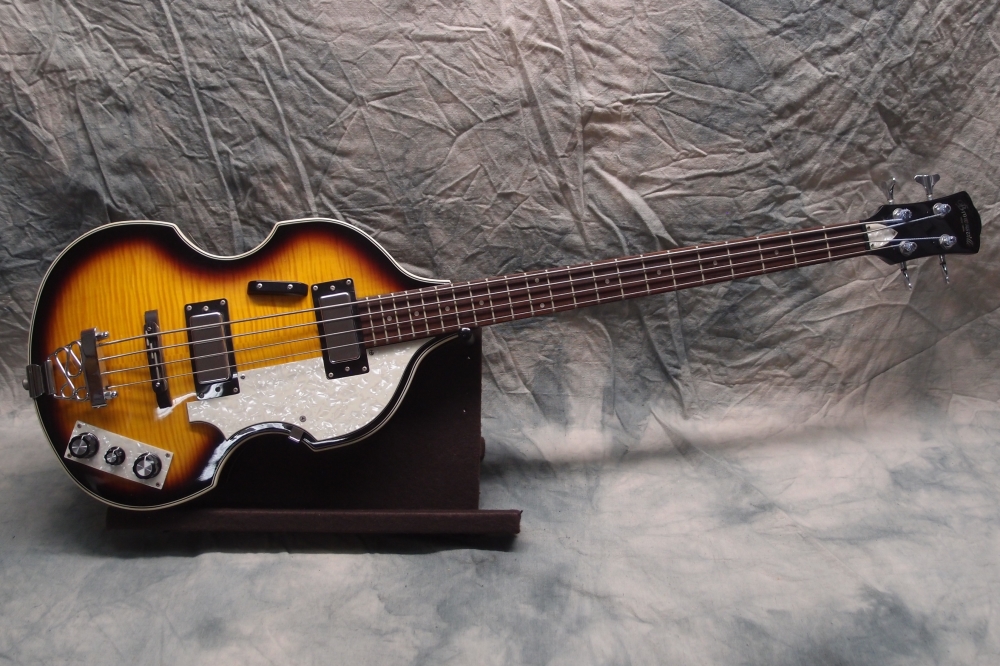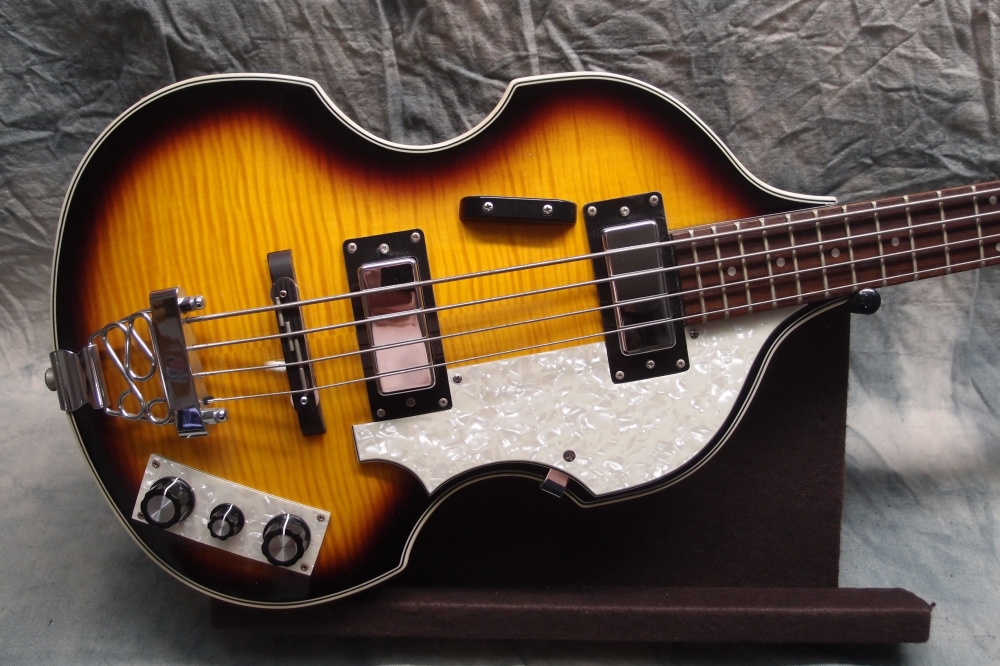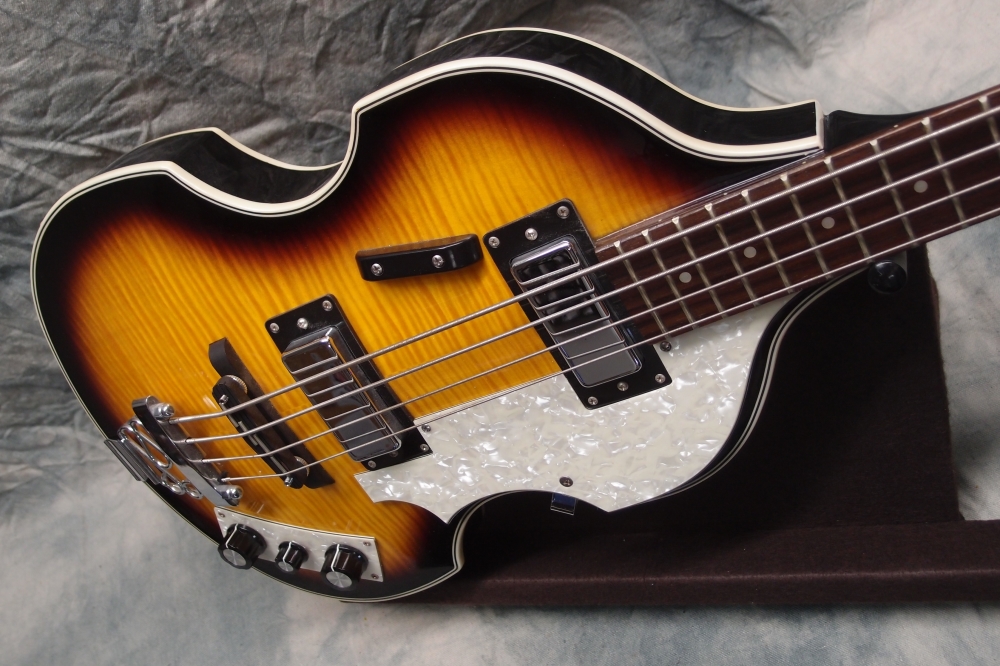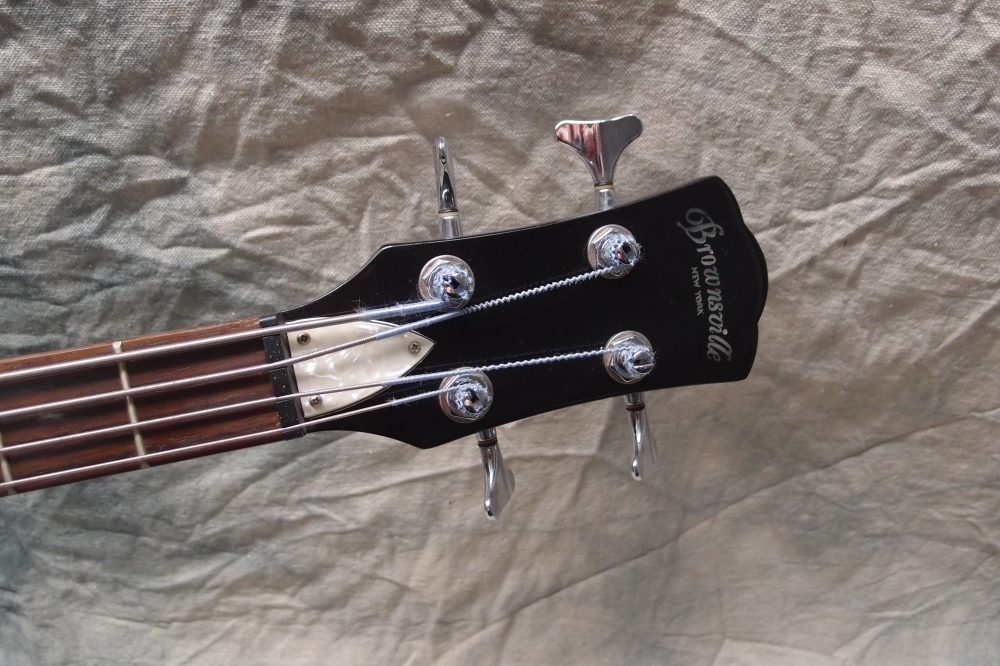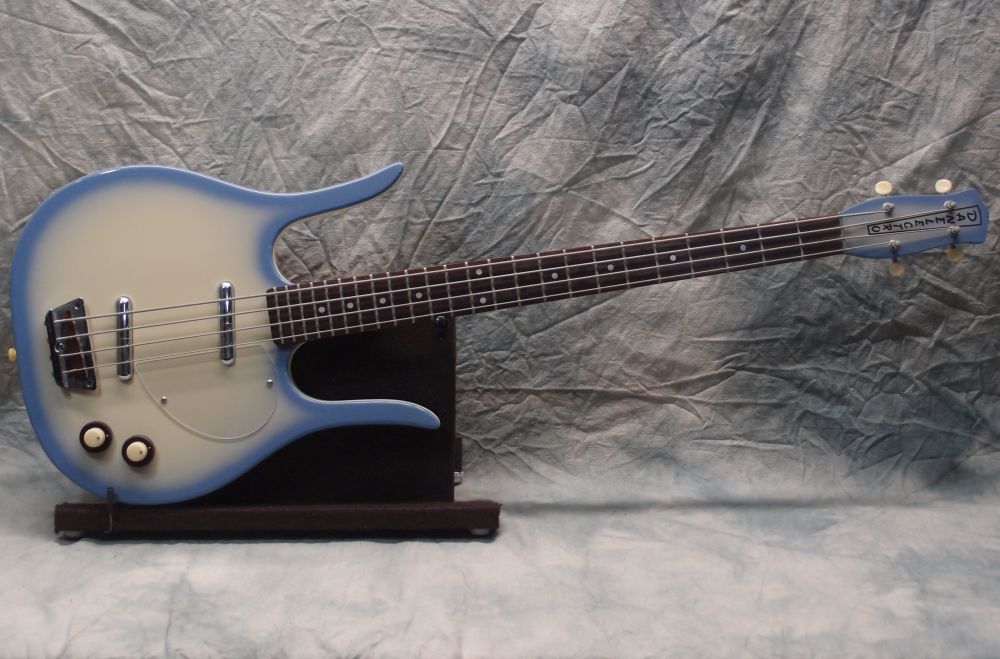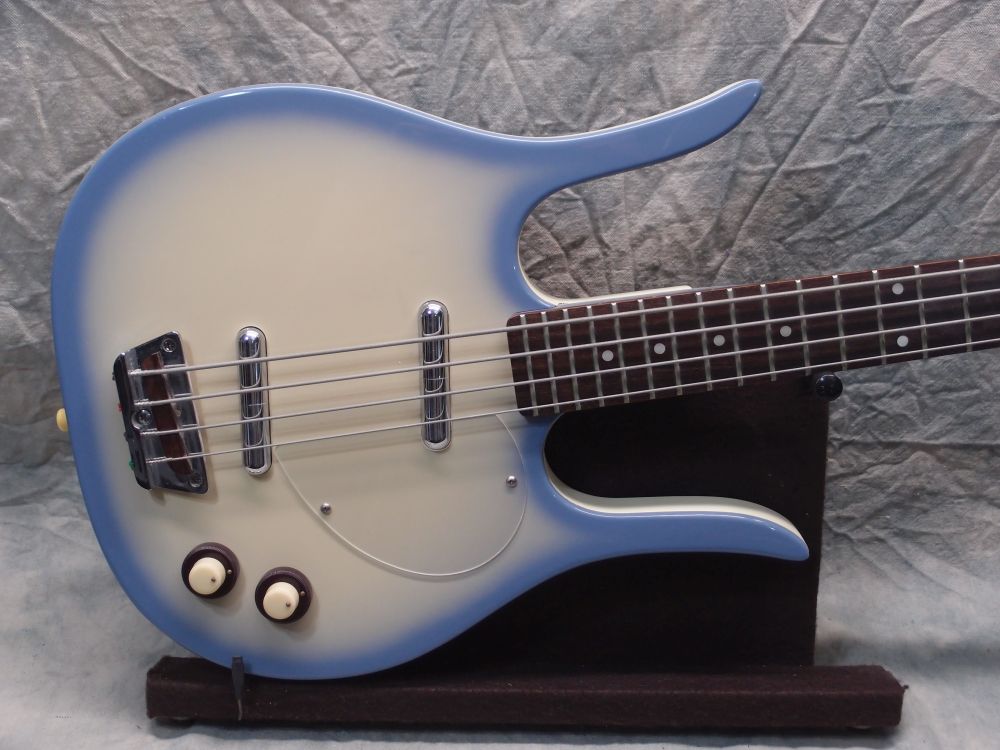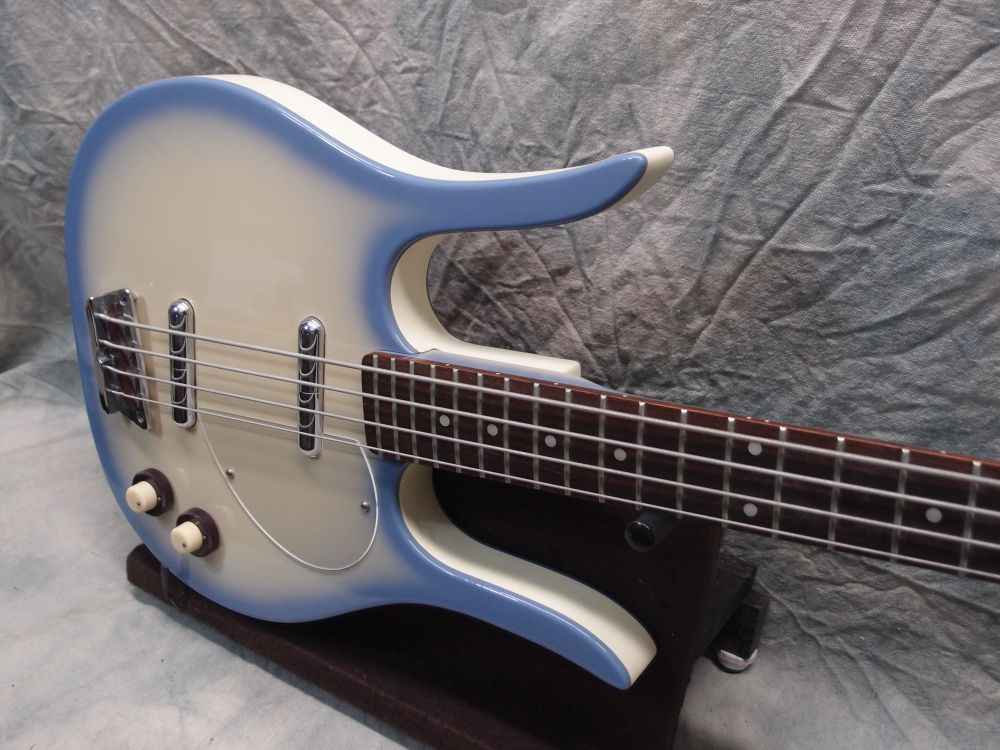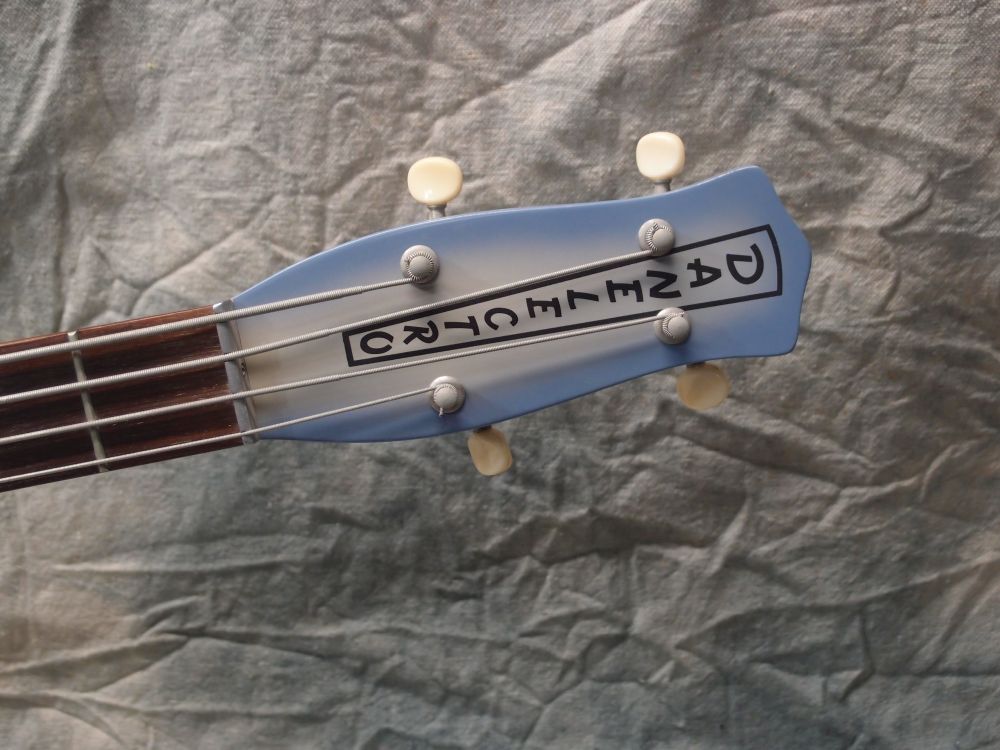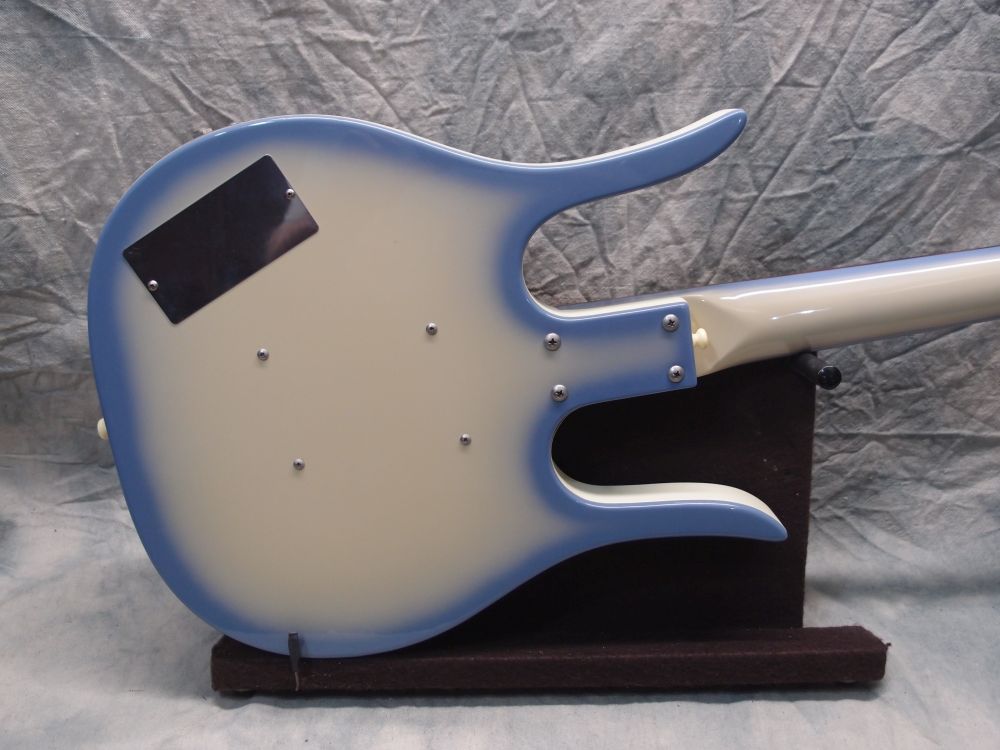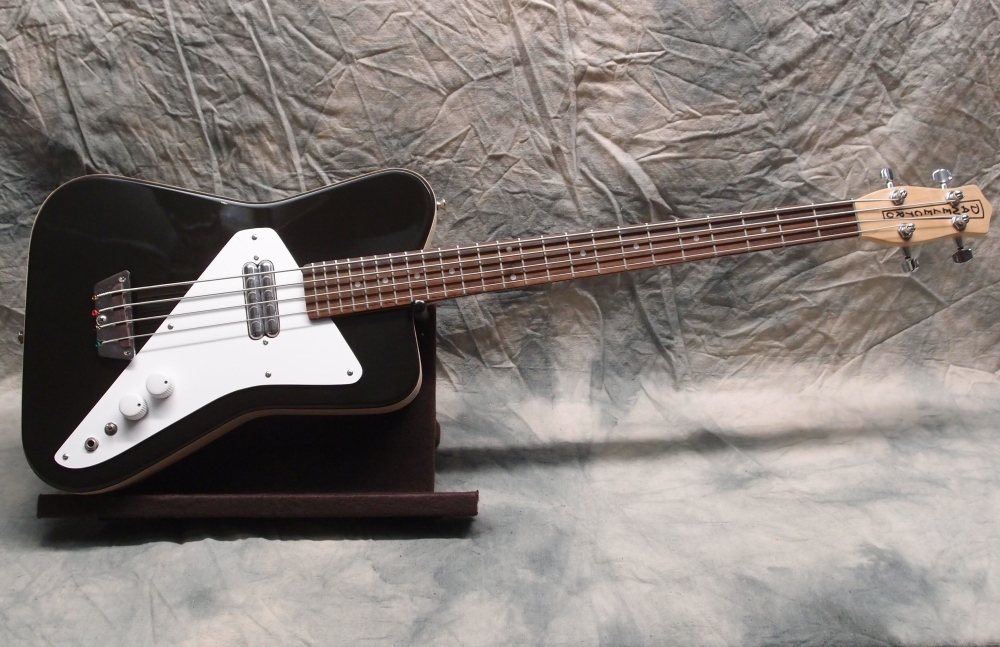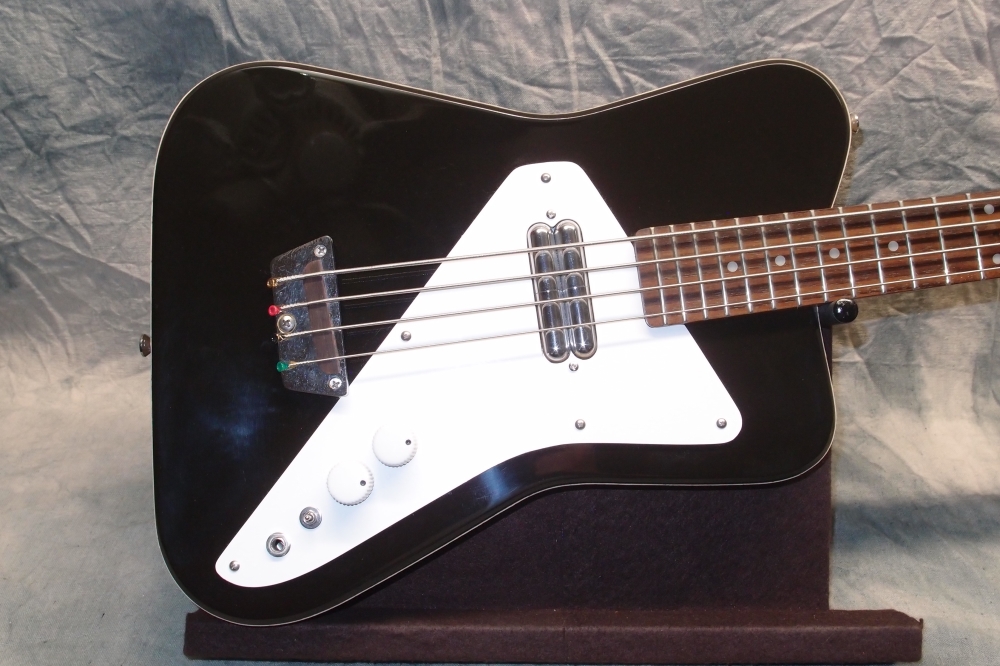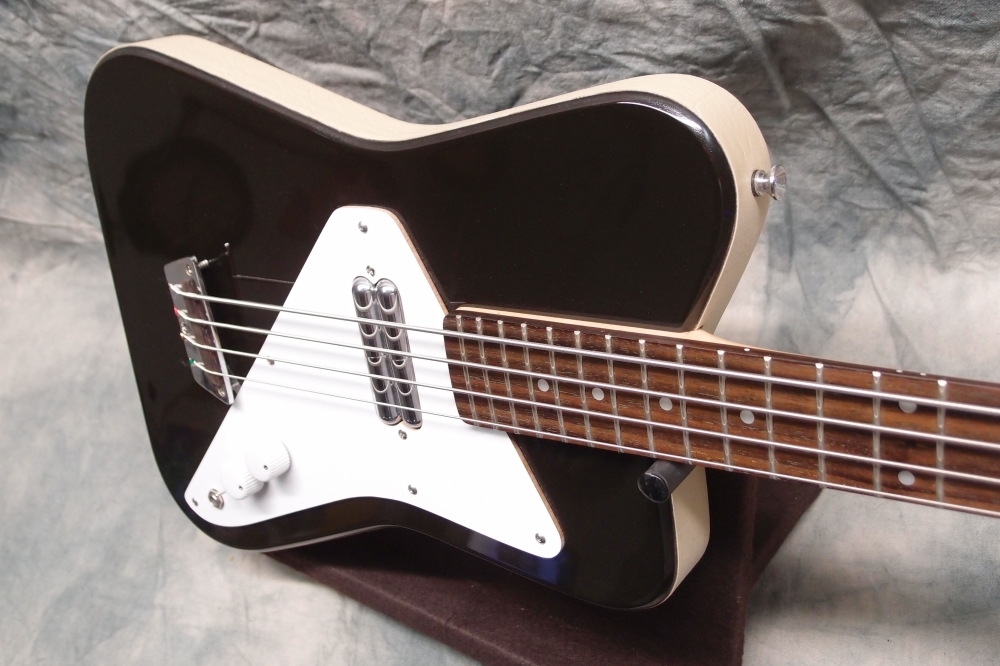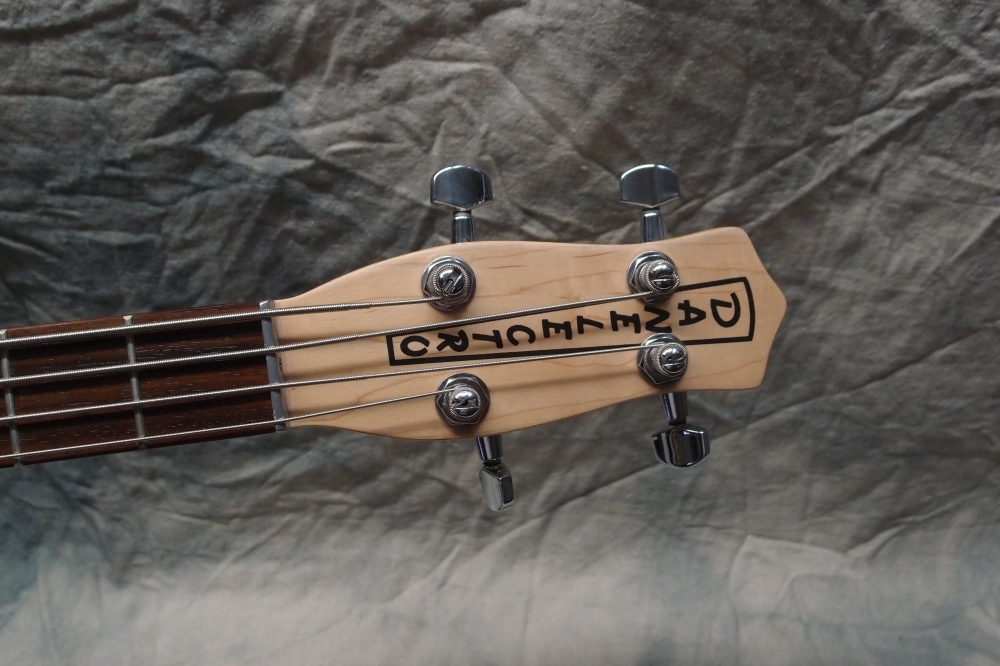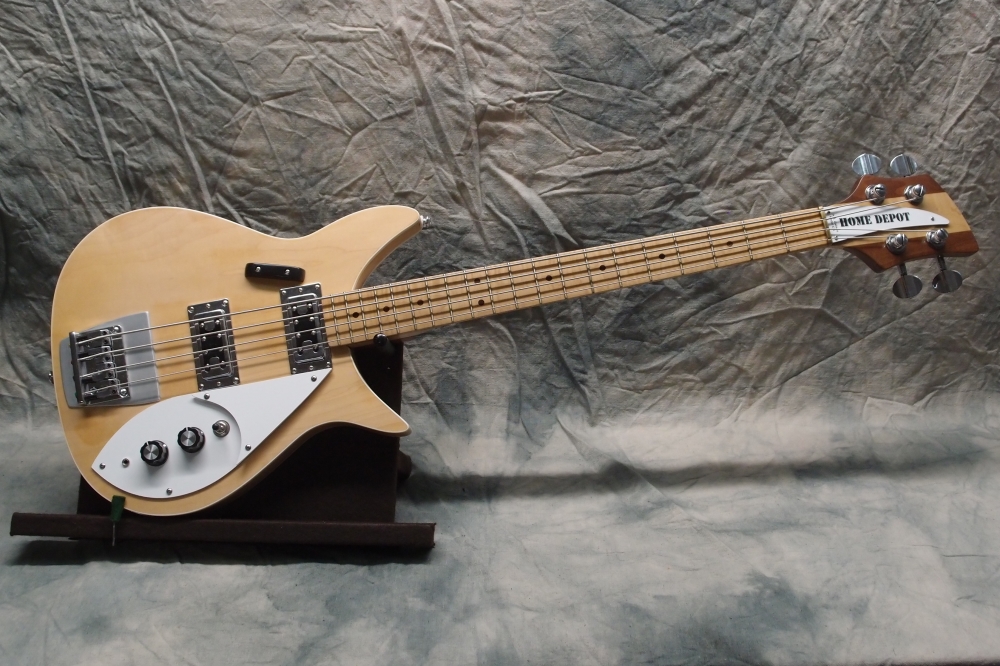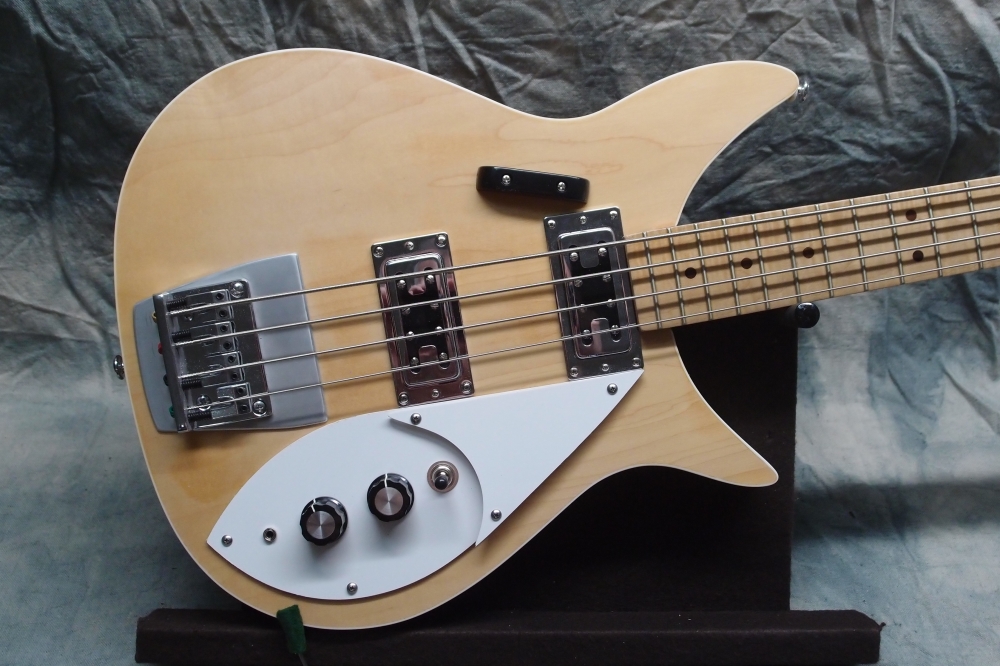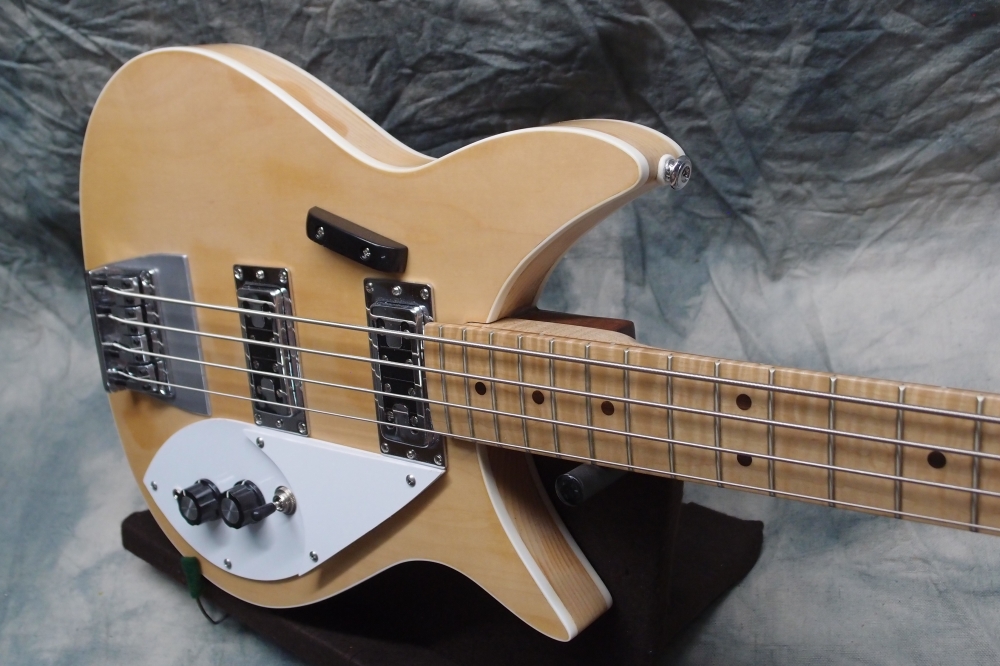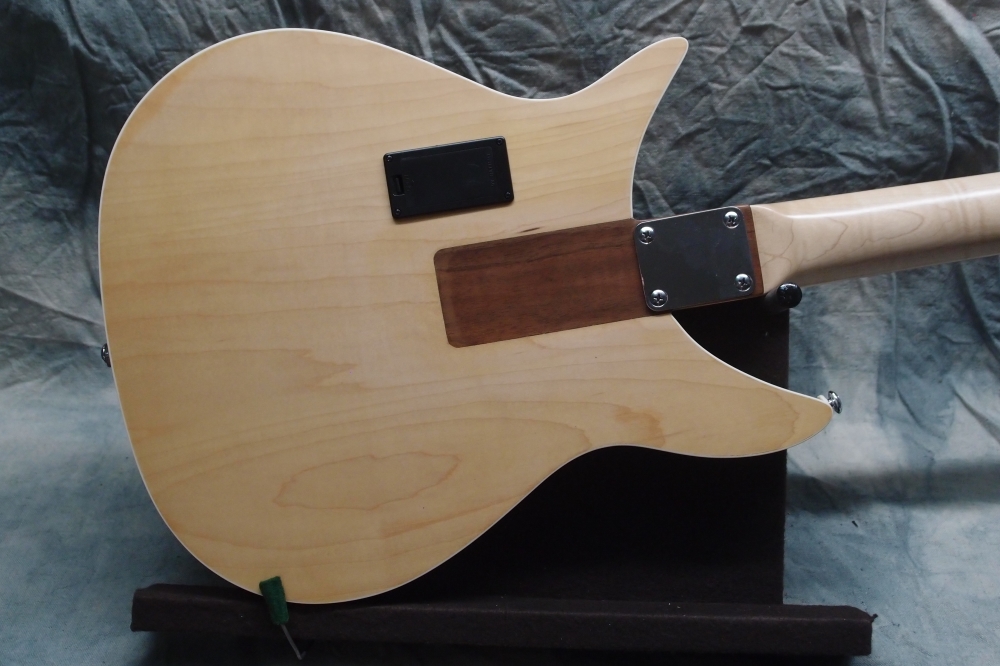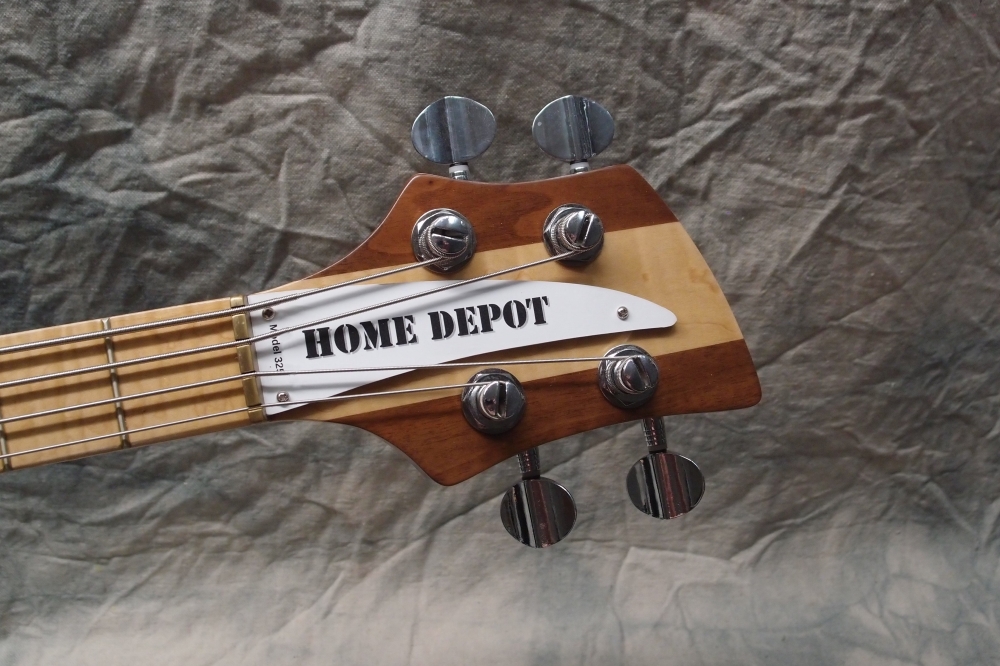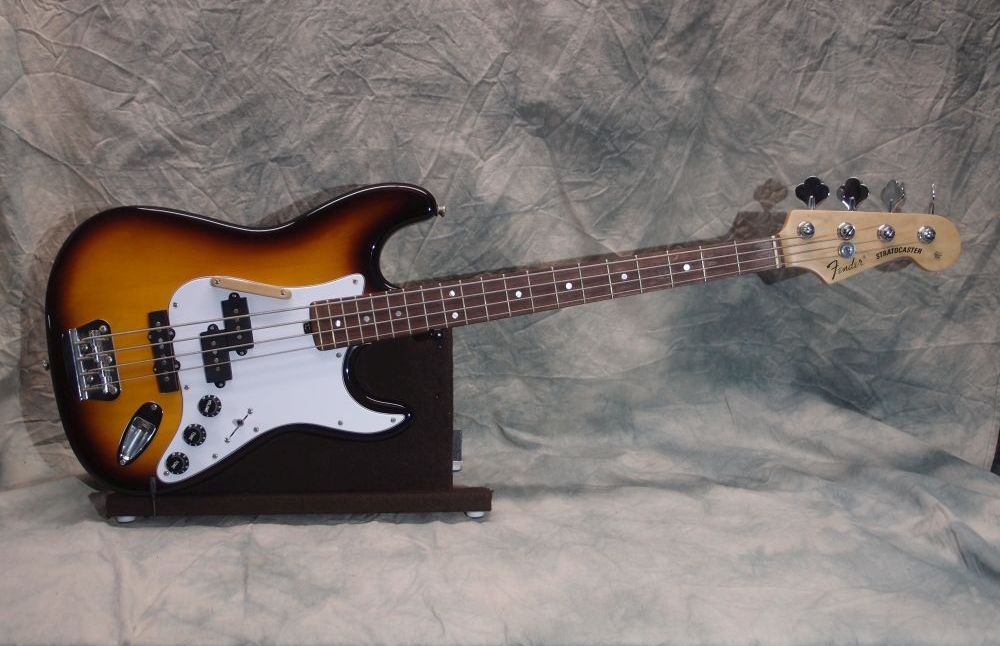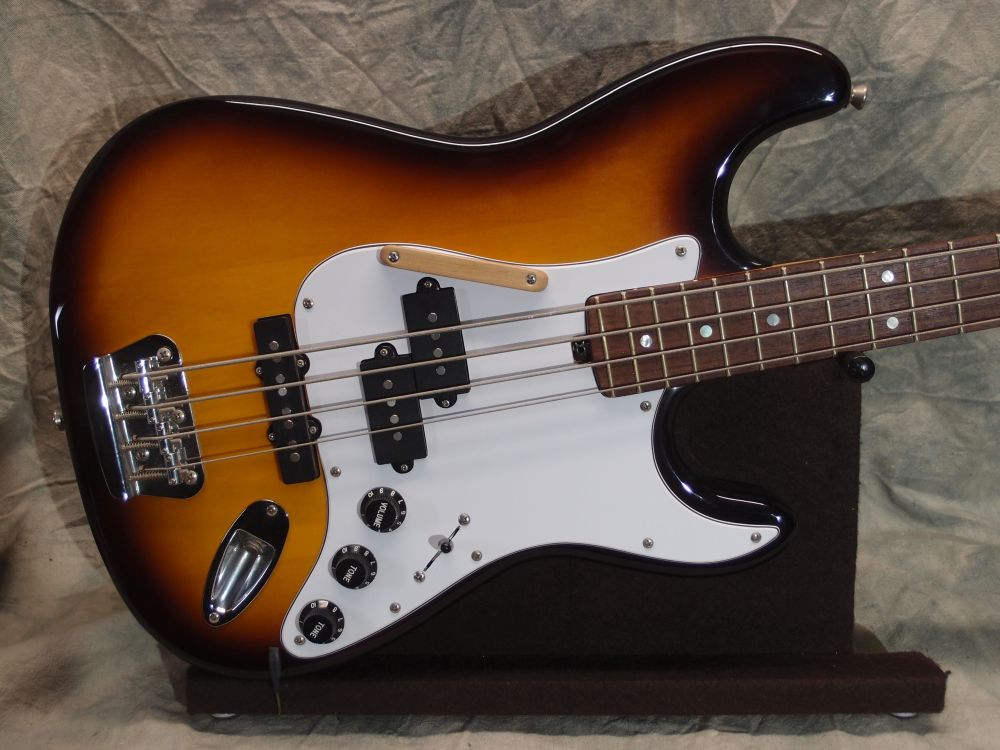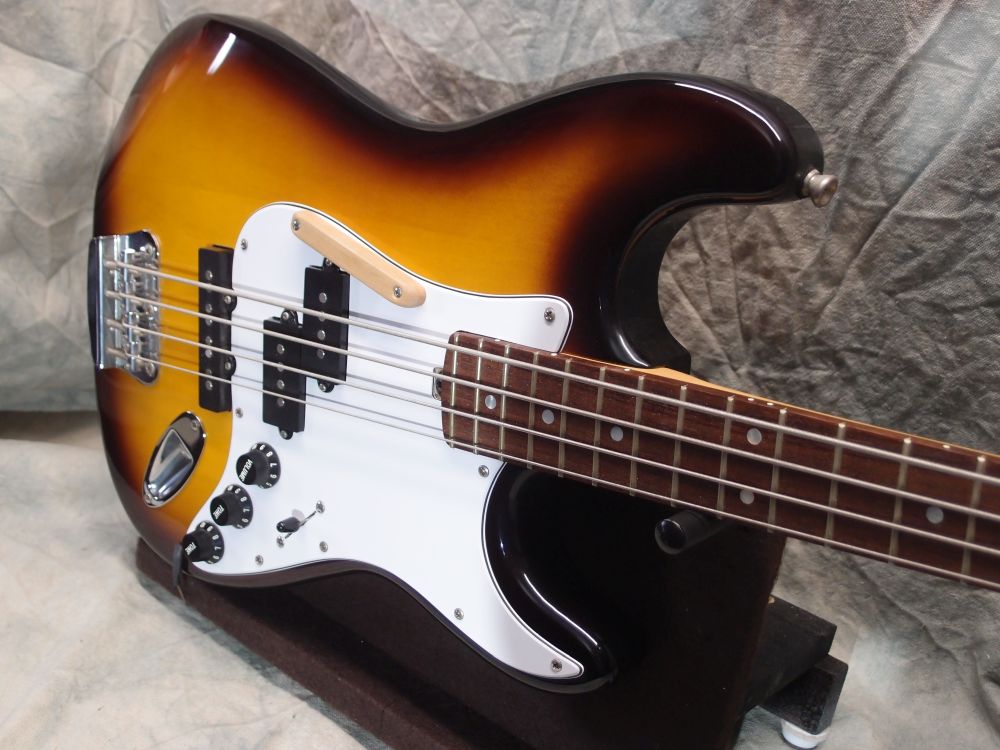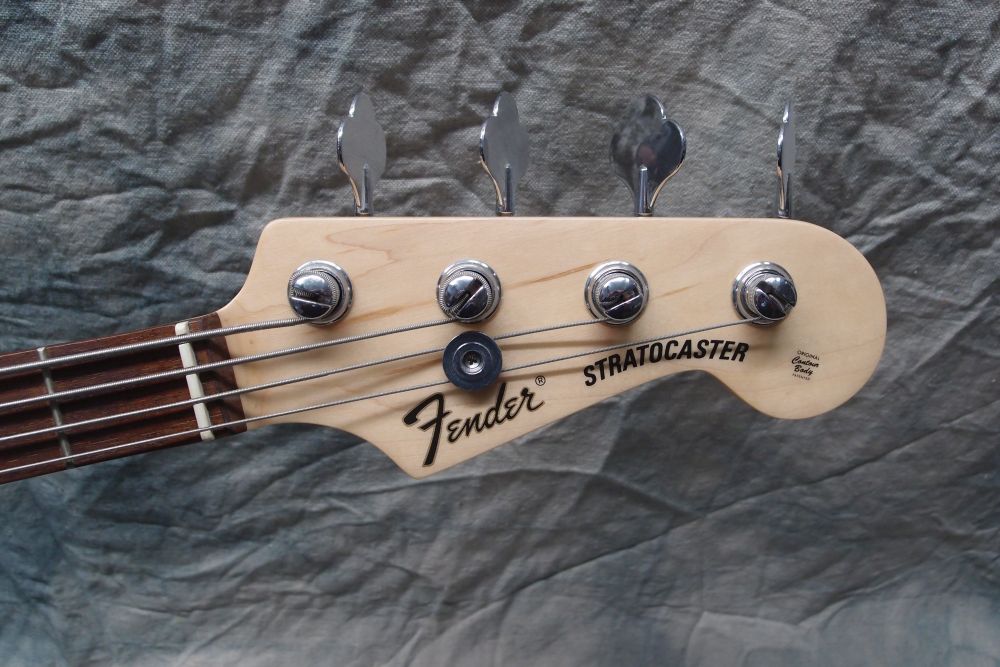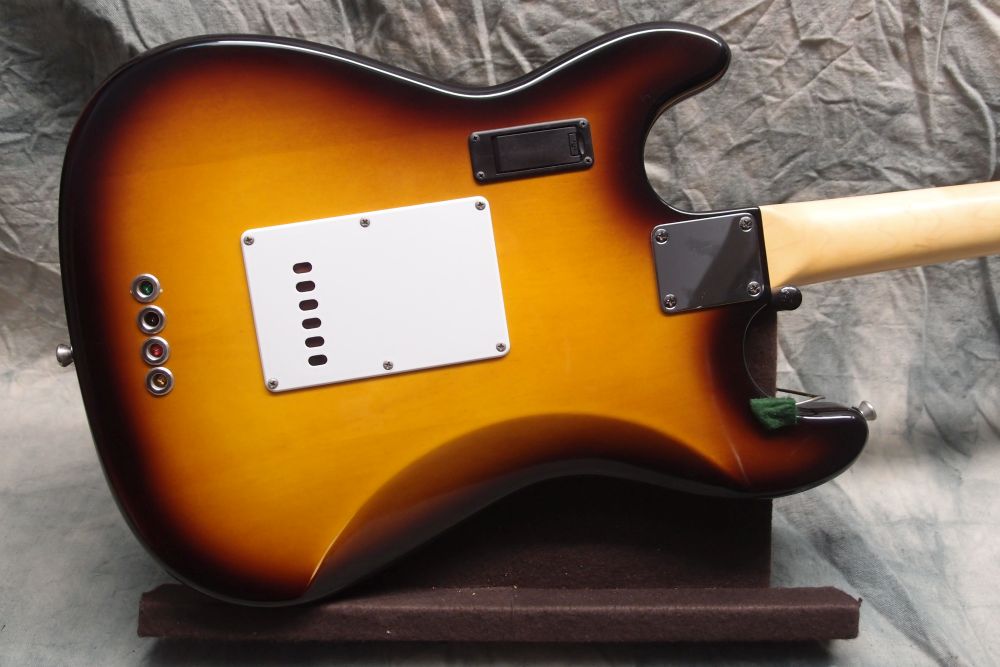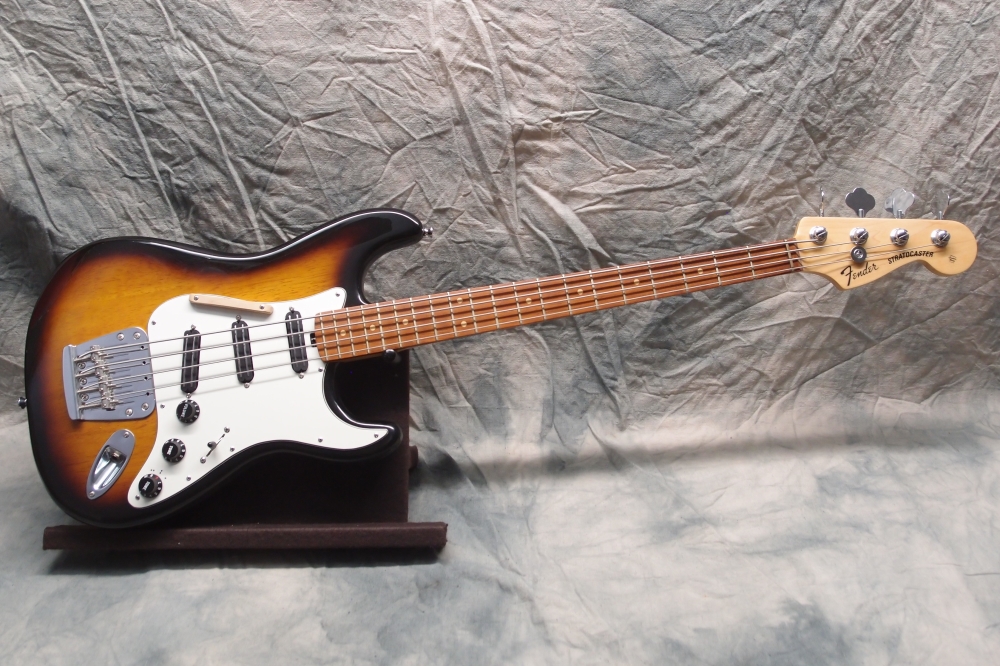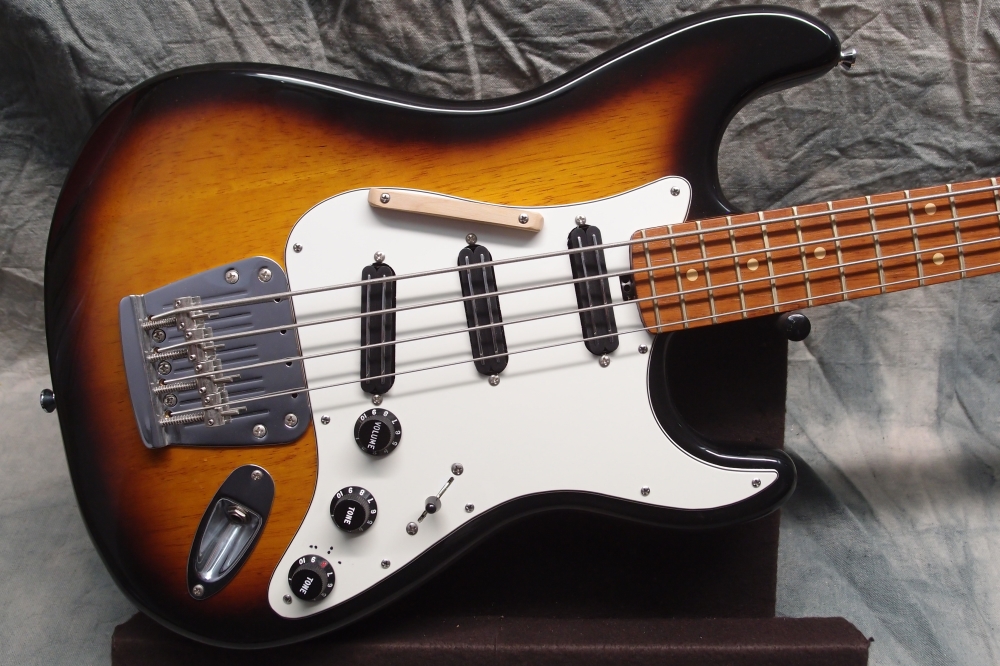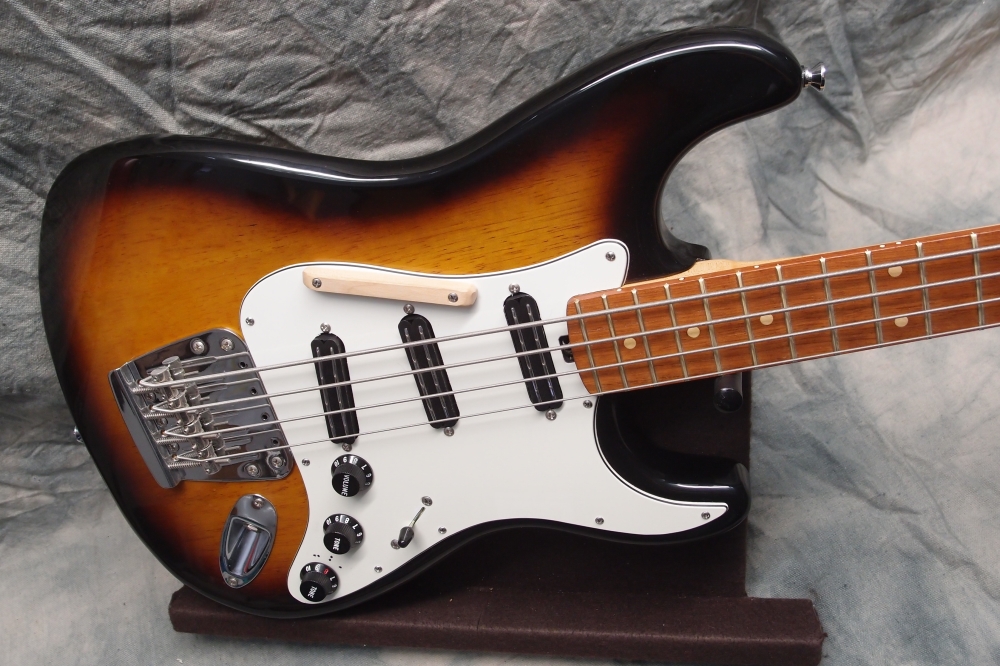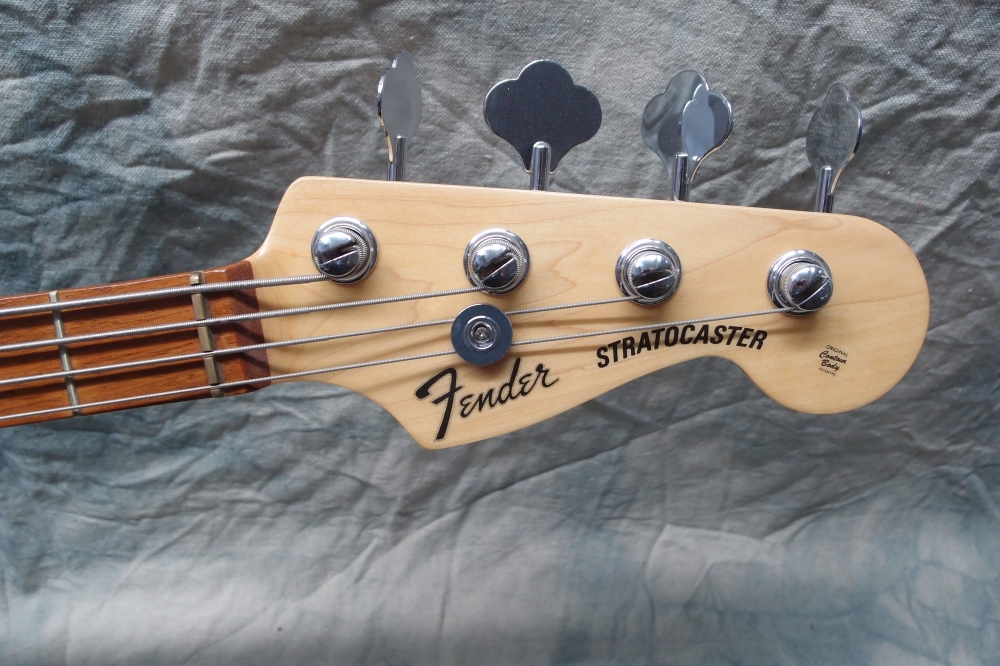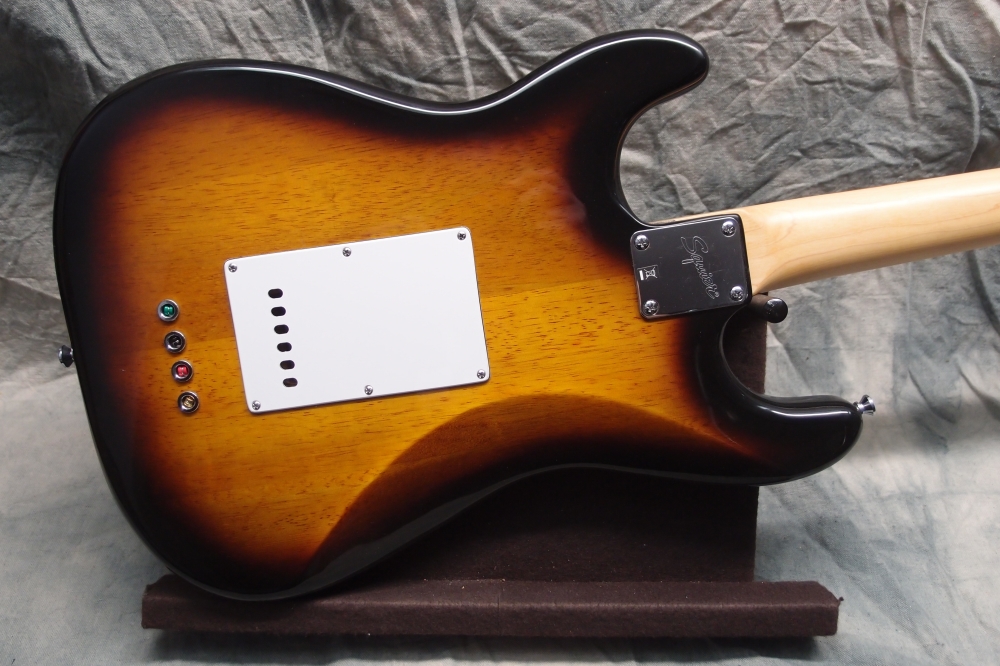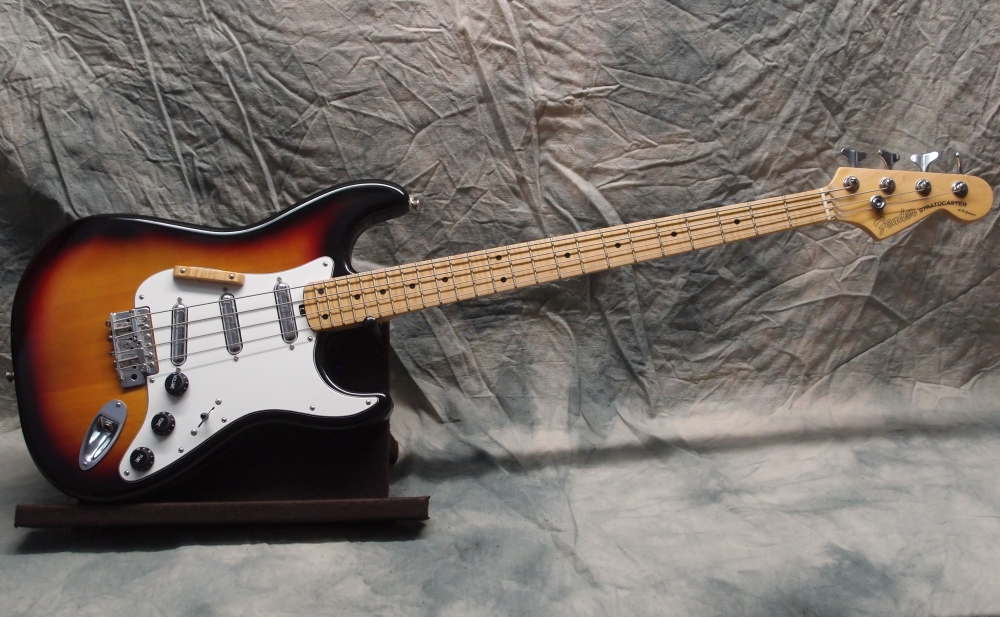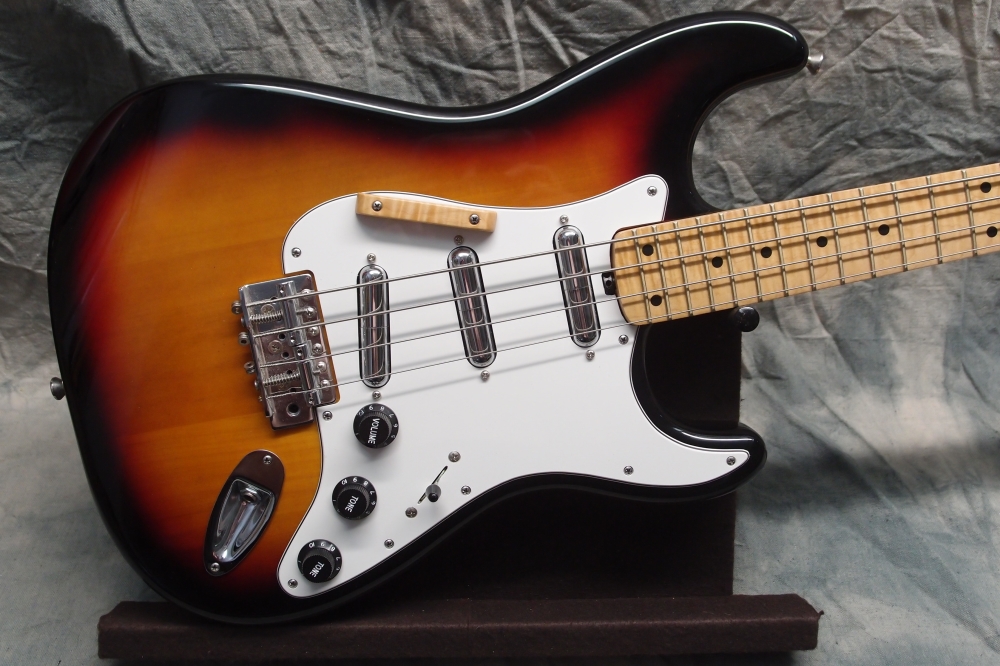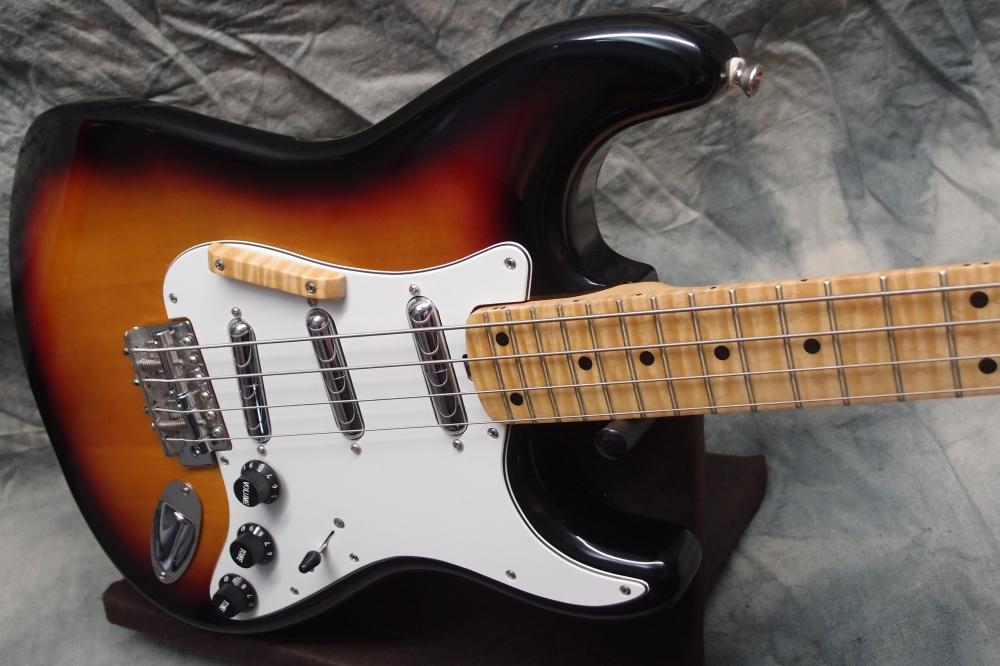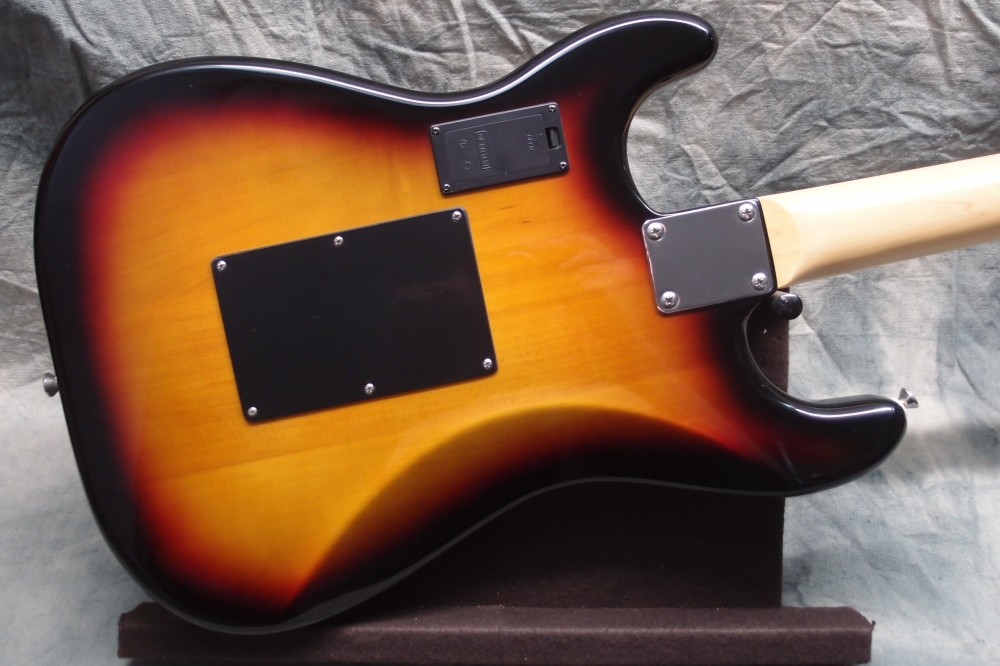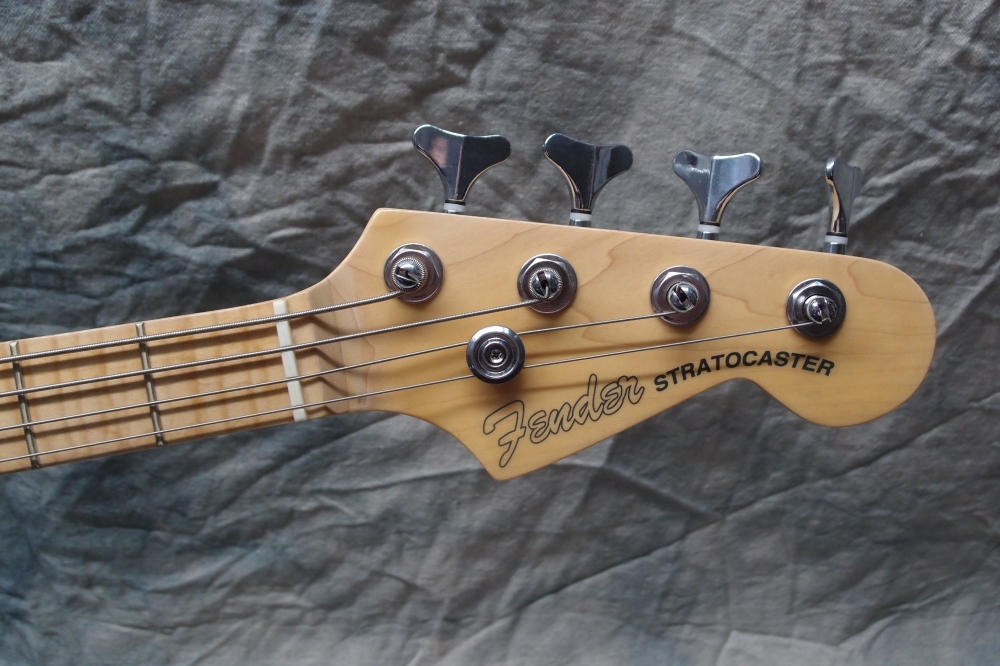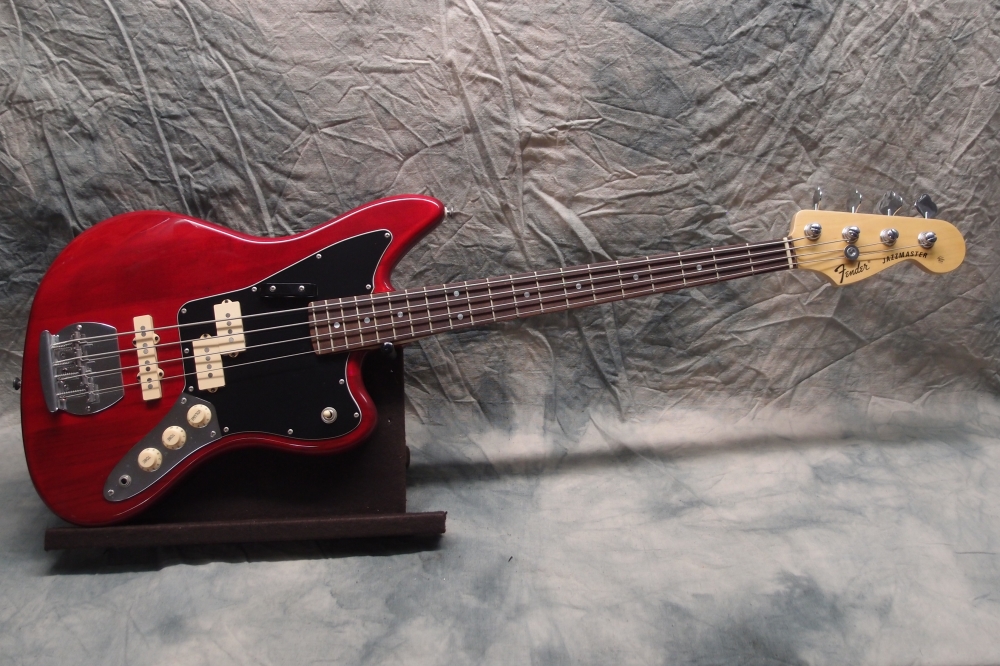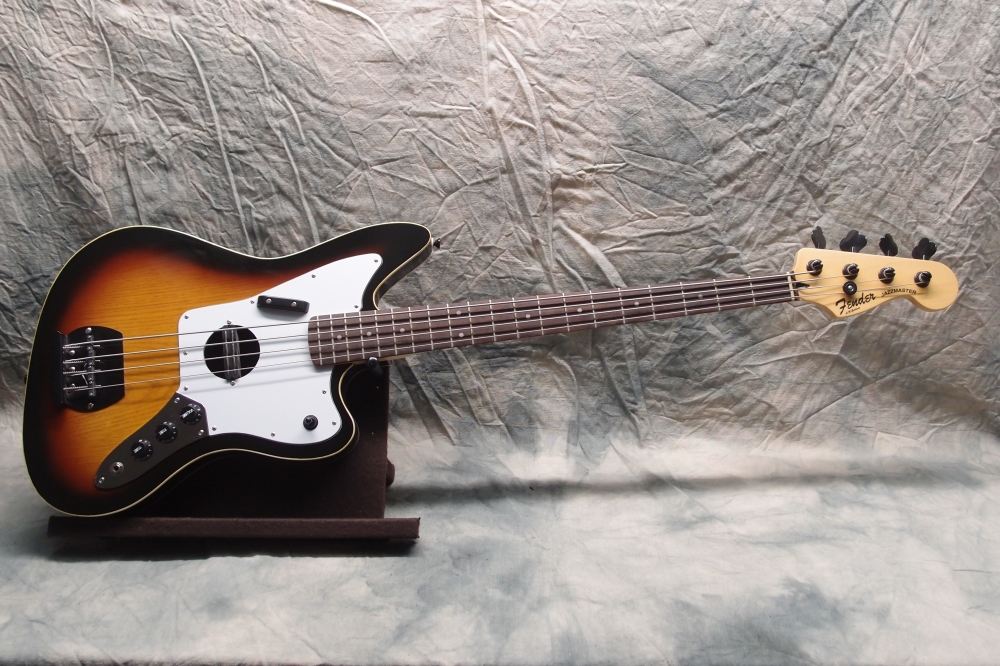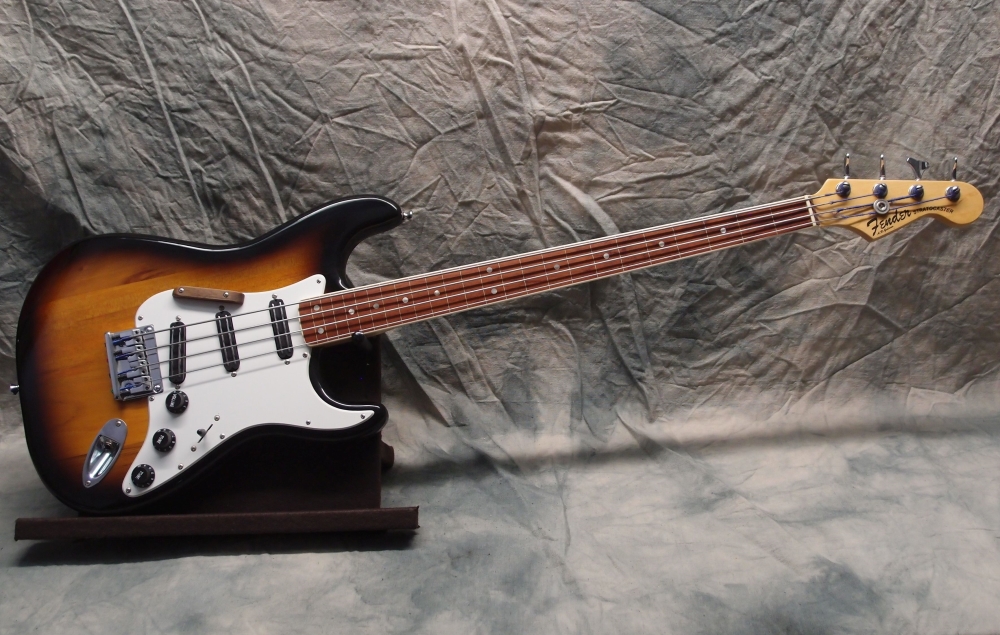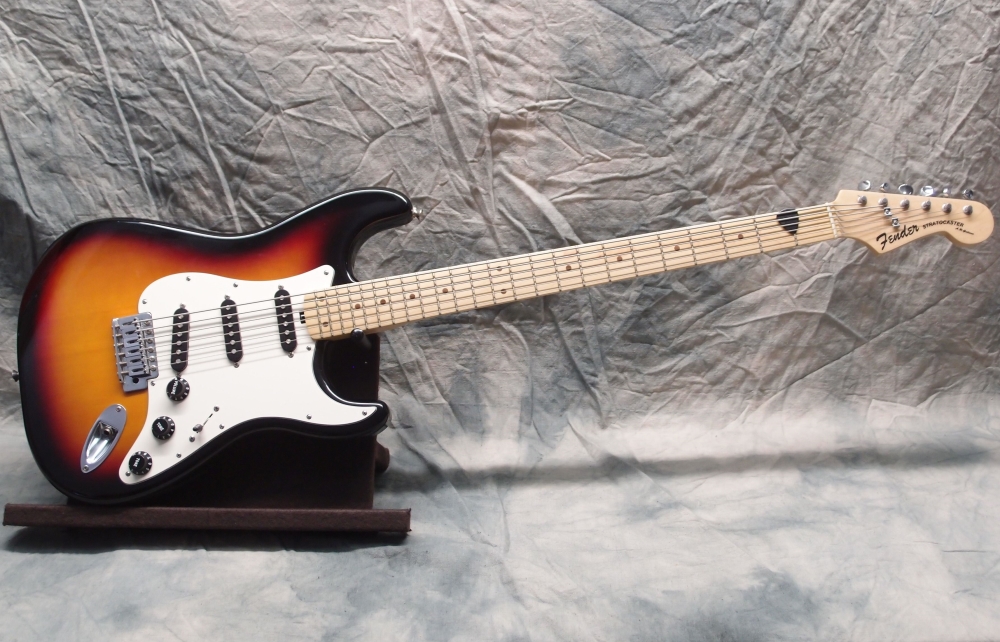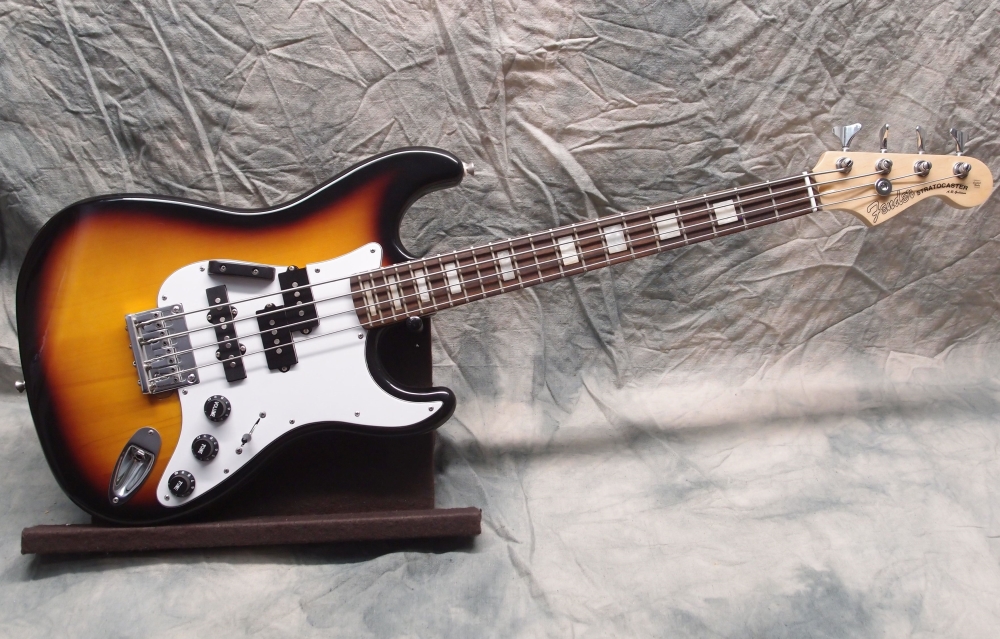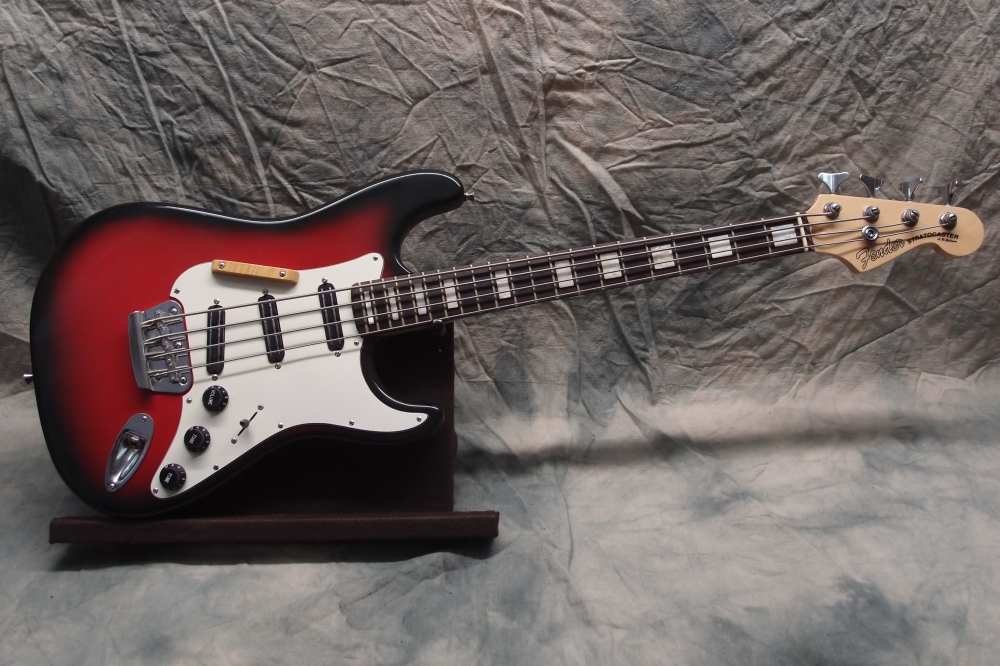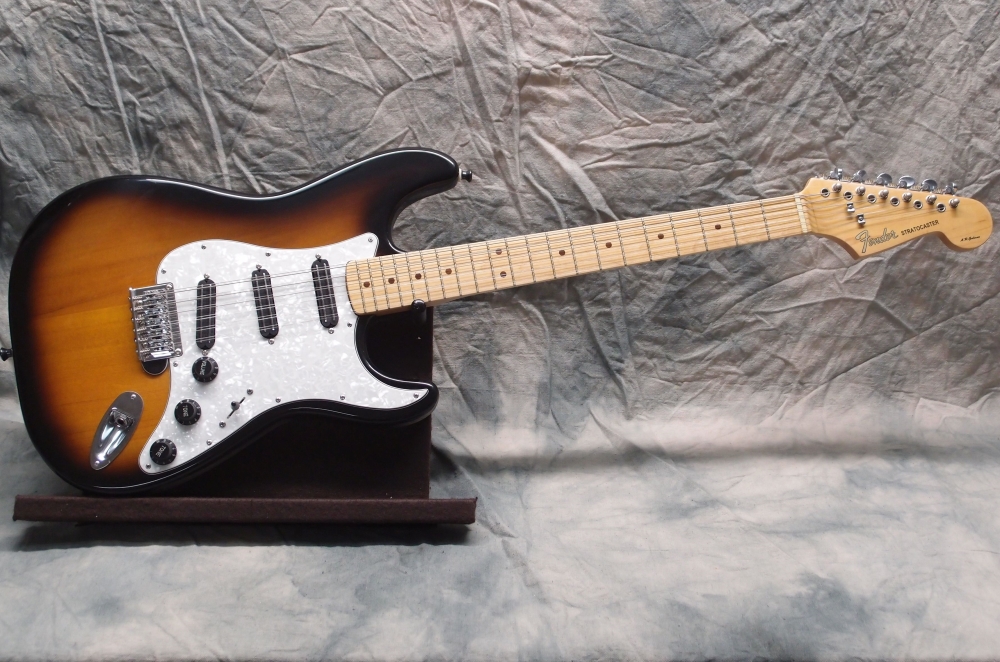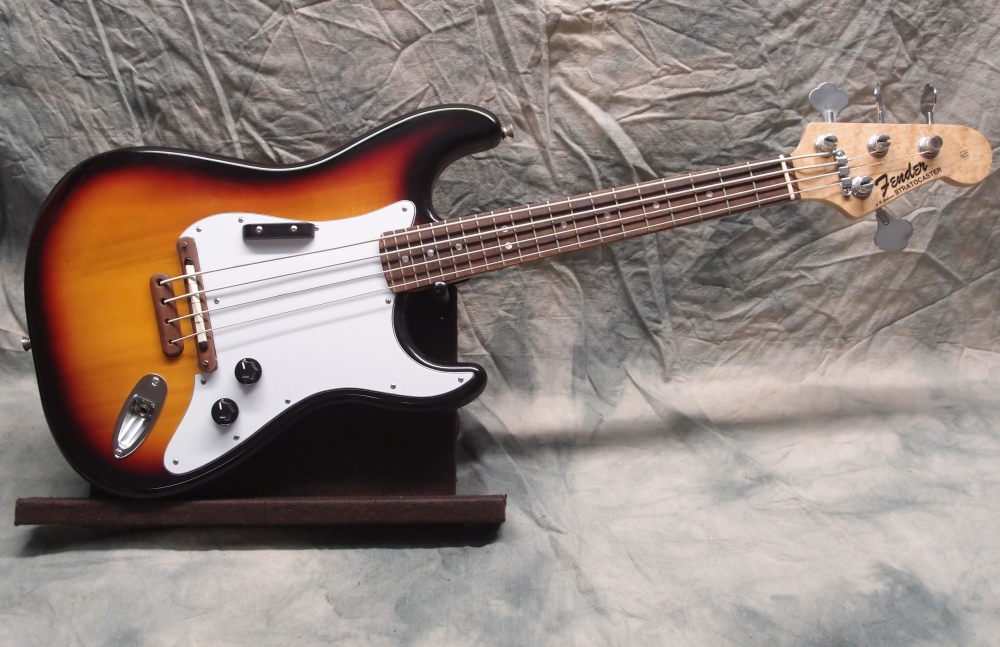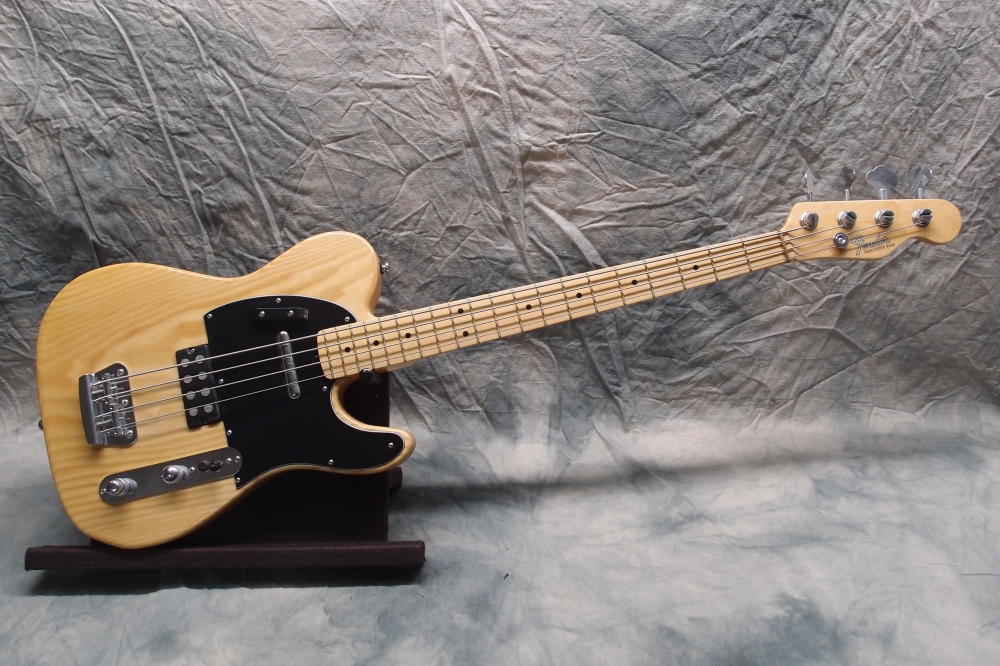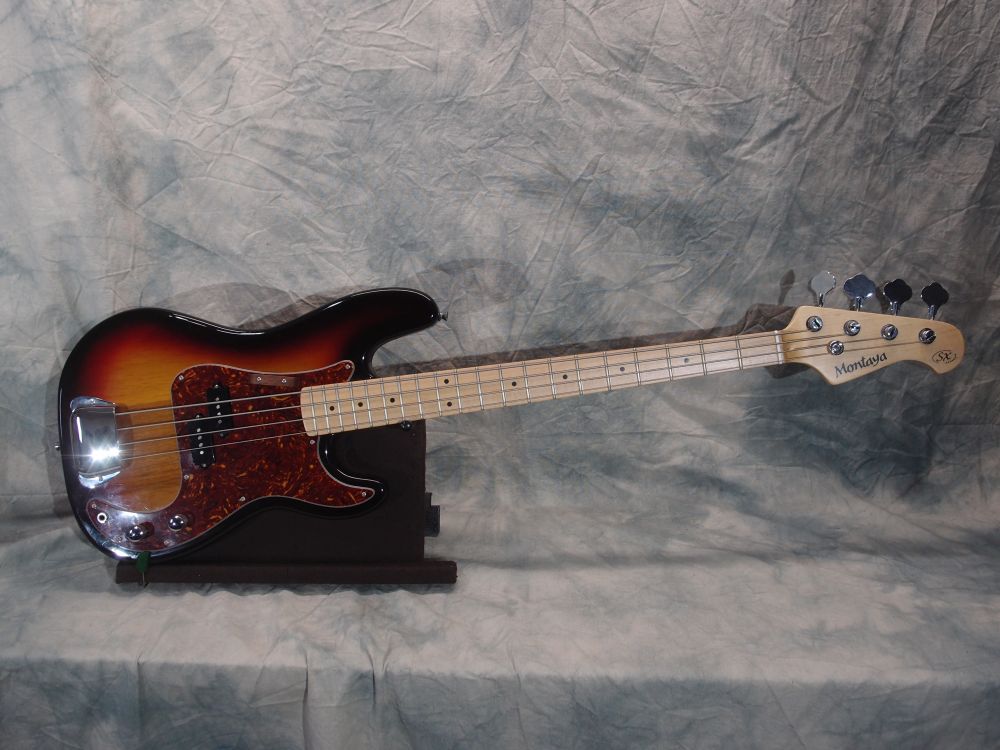Basses built with a short scale length of 30 inches.
This one is a body-twin to the 12-string, but with a 30" bass neck. Everything about it is Danelectro - lipstick pickups wired in series, stacked controls, masonite pickguard, Danelectro bridge. The body is masonite over chambered plywood, oil-based poly over pearl paint.
More: Audiovox Danelectro-Style Bass ...
This one is almost identical in construction to the Danelectro-style - masonite over chambered plywood body, masonite pickguard. The neck is purpleheart over maple, with plastic fret lines. The soundhole merely serves as a pickup mount, and the pickup was just insurance against never getting the intended piezo system to work. Eventually, I did get it to work, the piezo is incorporated in a modified bridge, and sounds great. 30" scale.
More: Audiovox Fretless Bass ...
Together with the guitar, this was the first of my modified Audiovox design to be completed. Solid poplar bodies, stained to look like walnut, with single bindings. Each pickguard used an entire sheet of material; only these two got the pearl treatment, the rest got much less expensive masonite pickguards.
More: Audiovox Solid-Body Bass ...
This is probably the cheapest violin bass on earth, and I got a discount on top of that because it had a persistent buzz that turned out to be a bad string. "Brownsville" is a house brand for Sam Ash, where I bought it on a whim. The scale is about 30.5". It's a beauty, isn't it?
More: Brownsville Violin Bass ...
This is an Evets '90s-vintage original reissue, made in Korea. These reissues are actually much better instruments than the originals from the 1960s. While a copper-burst would be more authentic, I like the sky blue better. The newer reissues are even more true to the originals.
More: Danelectro Longhorn Bass ...
The body was traced directly off the guitar, finished in very dark brown poly with tan Tolex. The neck is a reissue that has lain around for years. The bridge was originally left-handed, a few minutes with a file and it was right-handed. The double lipstick is switchable series/parallel/single-coil, for some variety. This is my first dry-erase pickguard.
More: Danelectro Pro-1 Bass ...
These were my first two tries at a 325 bass. Both are plywood over pine hollow-bodies. The one on the left - #1 - used an experimental neck mounting that I didn't like. The one on the right - #2 - suffered a router mishap. I took all the good parts and built the solid-body, and both of these spent years on the scrap heap.
More: Rickenbacker 325 Bass 1 ...
This body was purchased on eBay from a parted-out guitar. Might have been a Squier, I don't remember. It was in pretty good shape, and I gave it a good polishing. The neck is hand-made, one of my first. The back is hand-picked Home Depot maple, the fretboard is pre-slotted rosewood from StewMac, I hadn't yet worked out how to make my own. If you cut the first two frets off a 34" fretboard, you end up with a 30" scale. That's about the limit with a pre-slotted fretboard though, as you start to run out of frets at the other end. The dots are 1/4" pearl from StewMac, expensive. The frets are probably pre-cut Fender.
More: Stratocaster Bass 1 ...
This Strat bass is another of my early projects, an evolution of the first one. It uses basically the same neck, but mounted in the stock guitar neck pocket. This moves the bridge position adjacent to the old tremolo hole, but the expansive Mustang bridge plate covers it nicely. The pickguard looks stock, but is actually custom-made to cover the six stock bridge screw holes. If you can't get a Mustang bridge ( and you can't any more, ) you could extend the pickguard to cover all the guitar holes, or use a stock pickguard and just make a small bridge-sized cover. Or just leave the tremolo hole and keep your stash in it.
More: Stratocaster Bass 2 ...
Uses the bottom four strings of a Bass VI set to get a low enough total string tension for the Strat tremolo to work.
More: Stratocaster Bass IV ...




